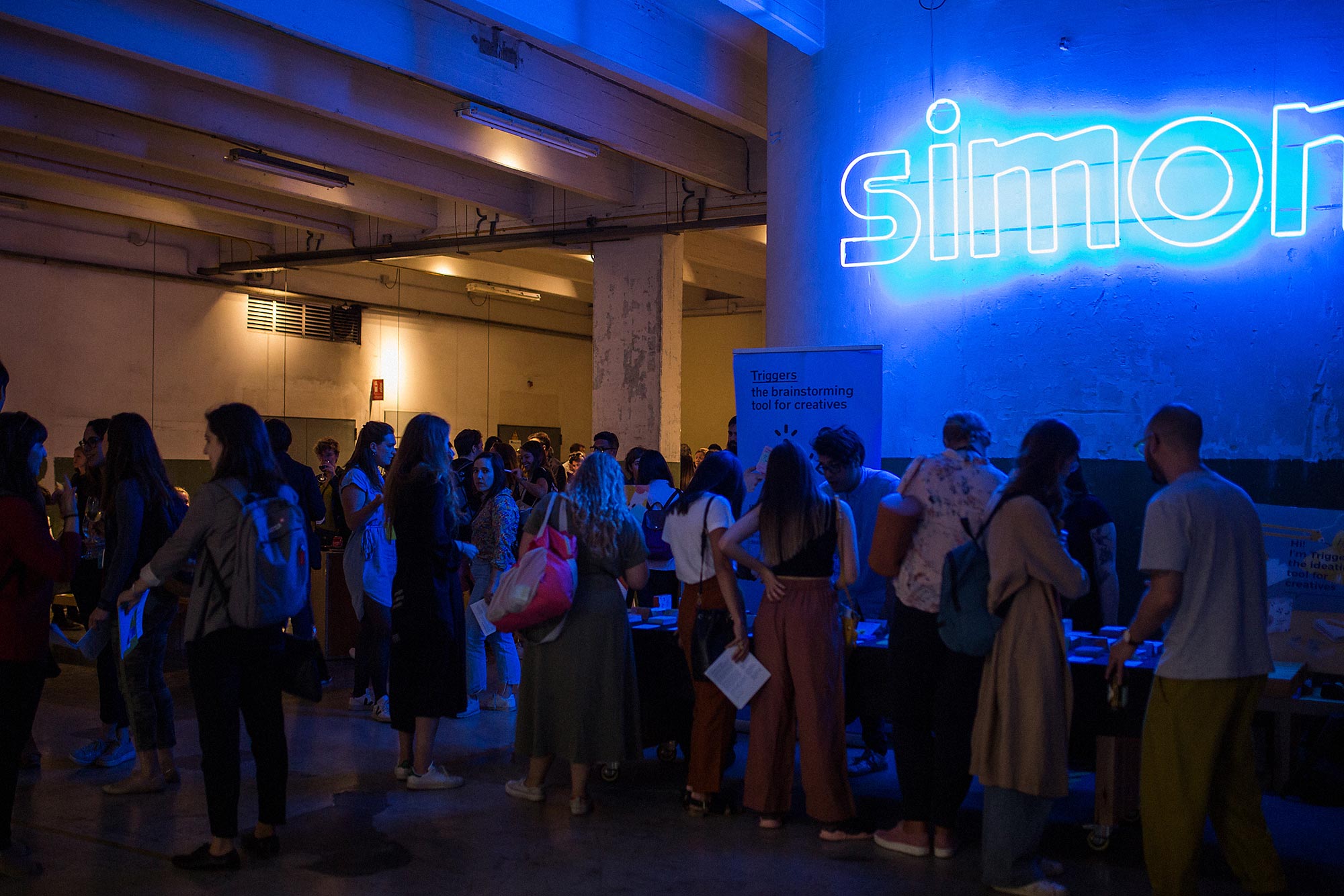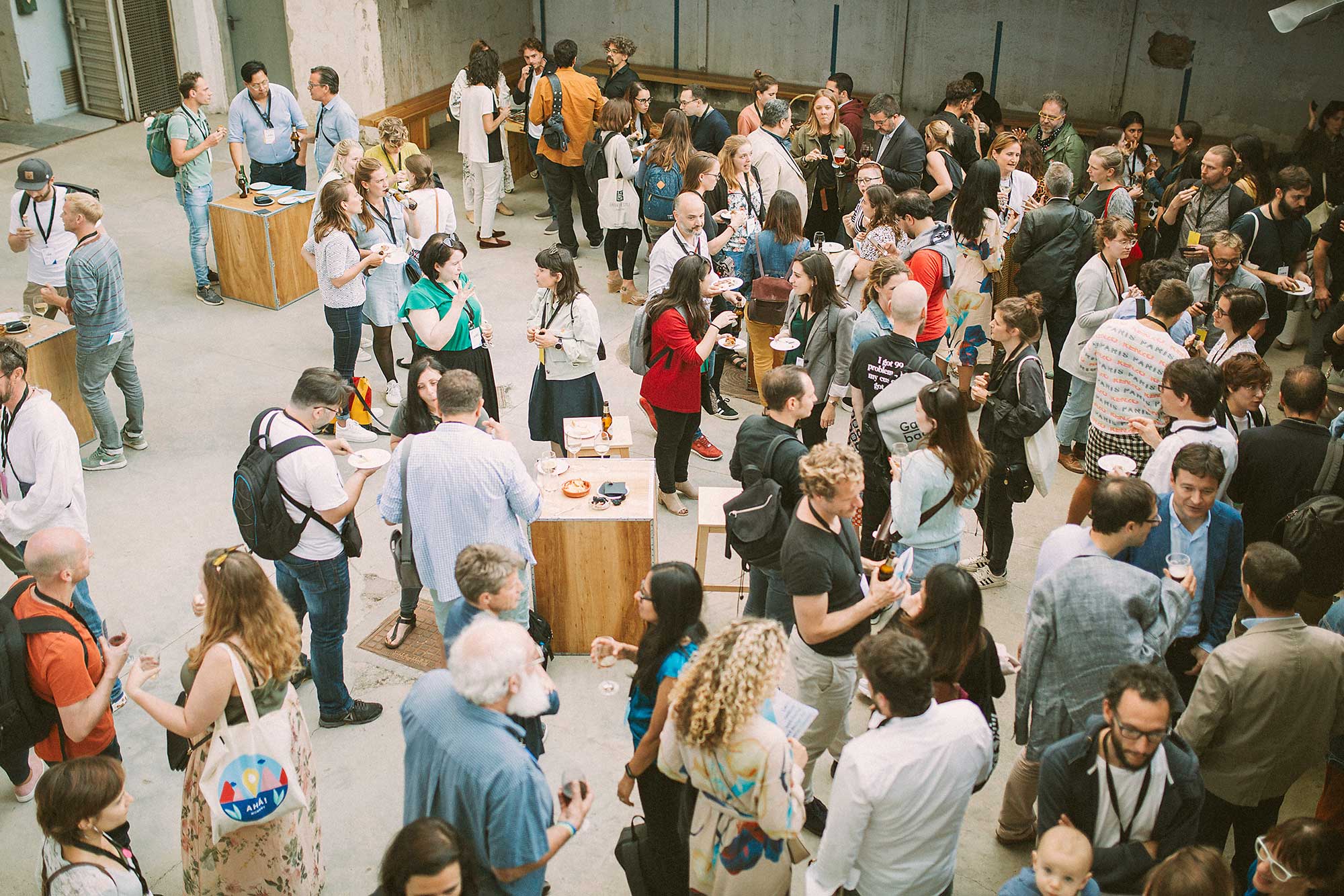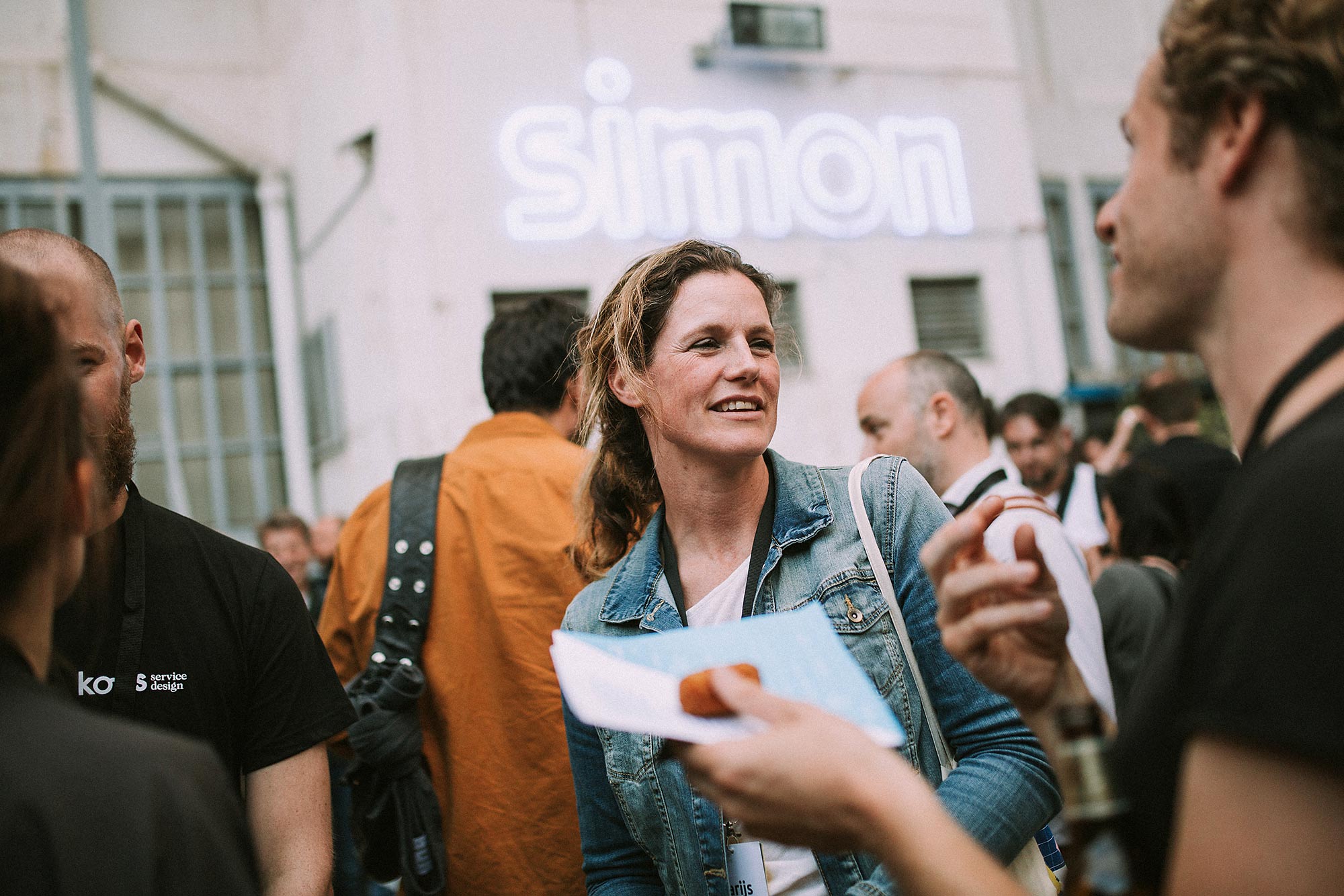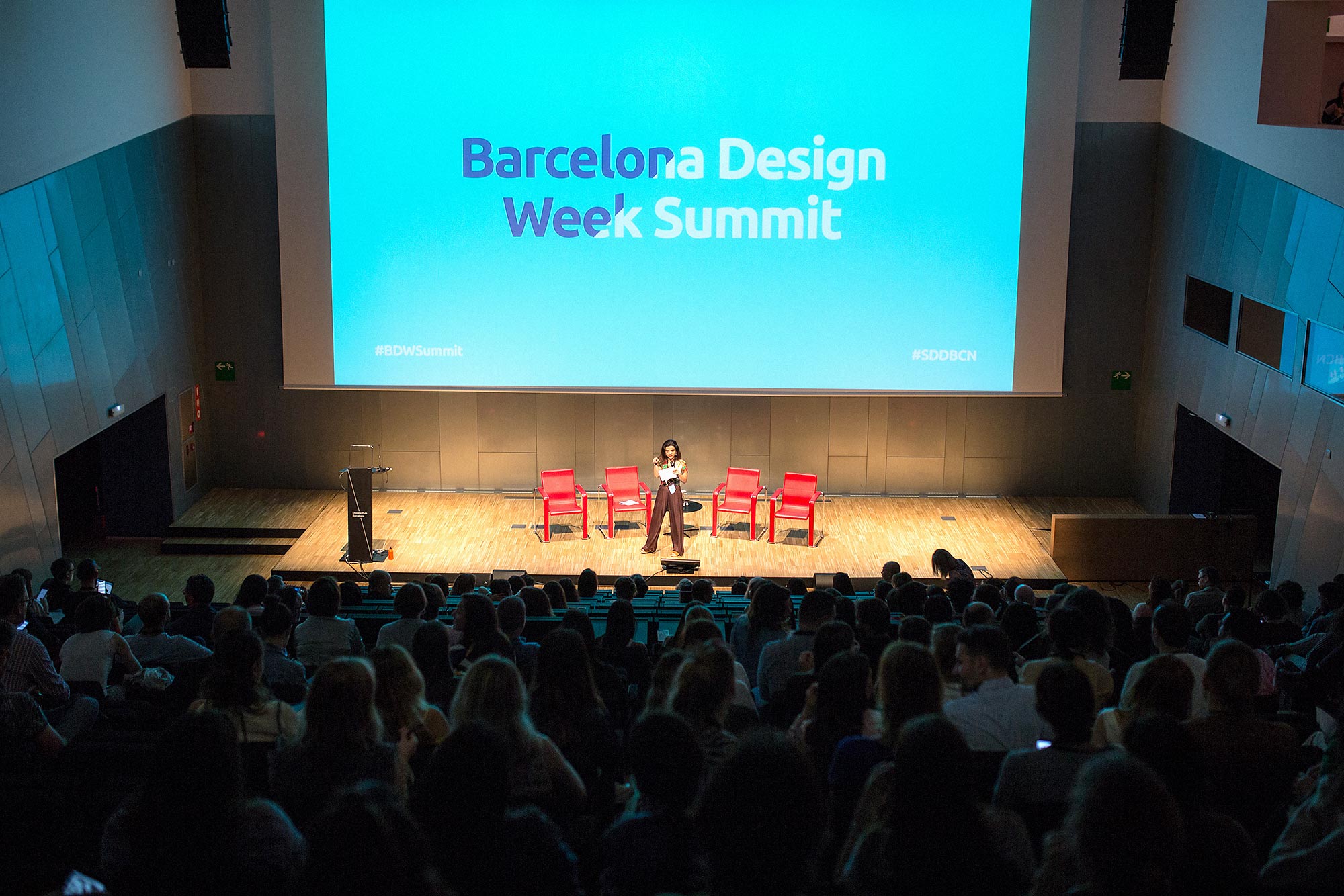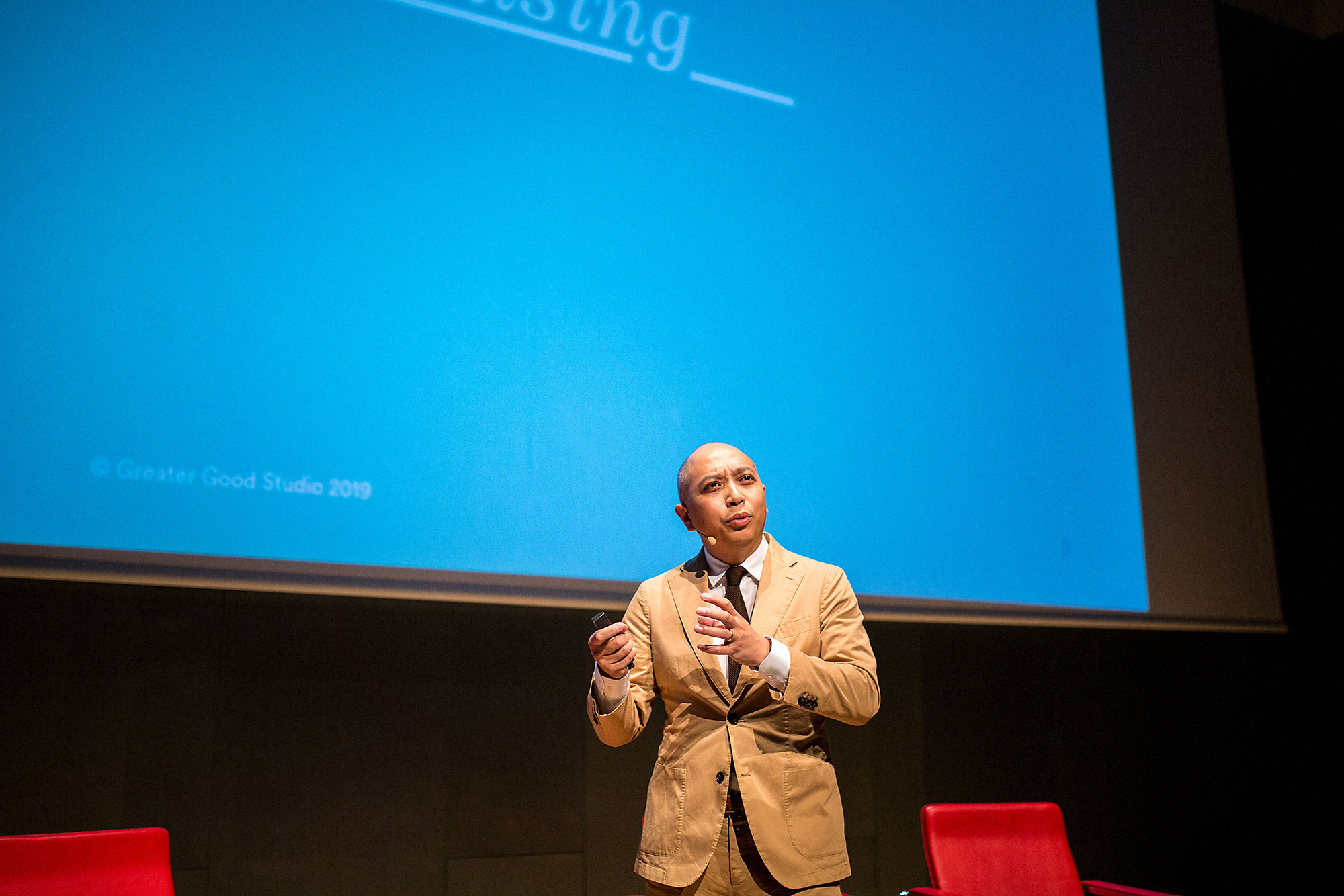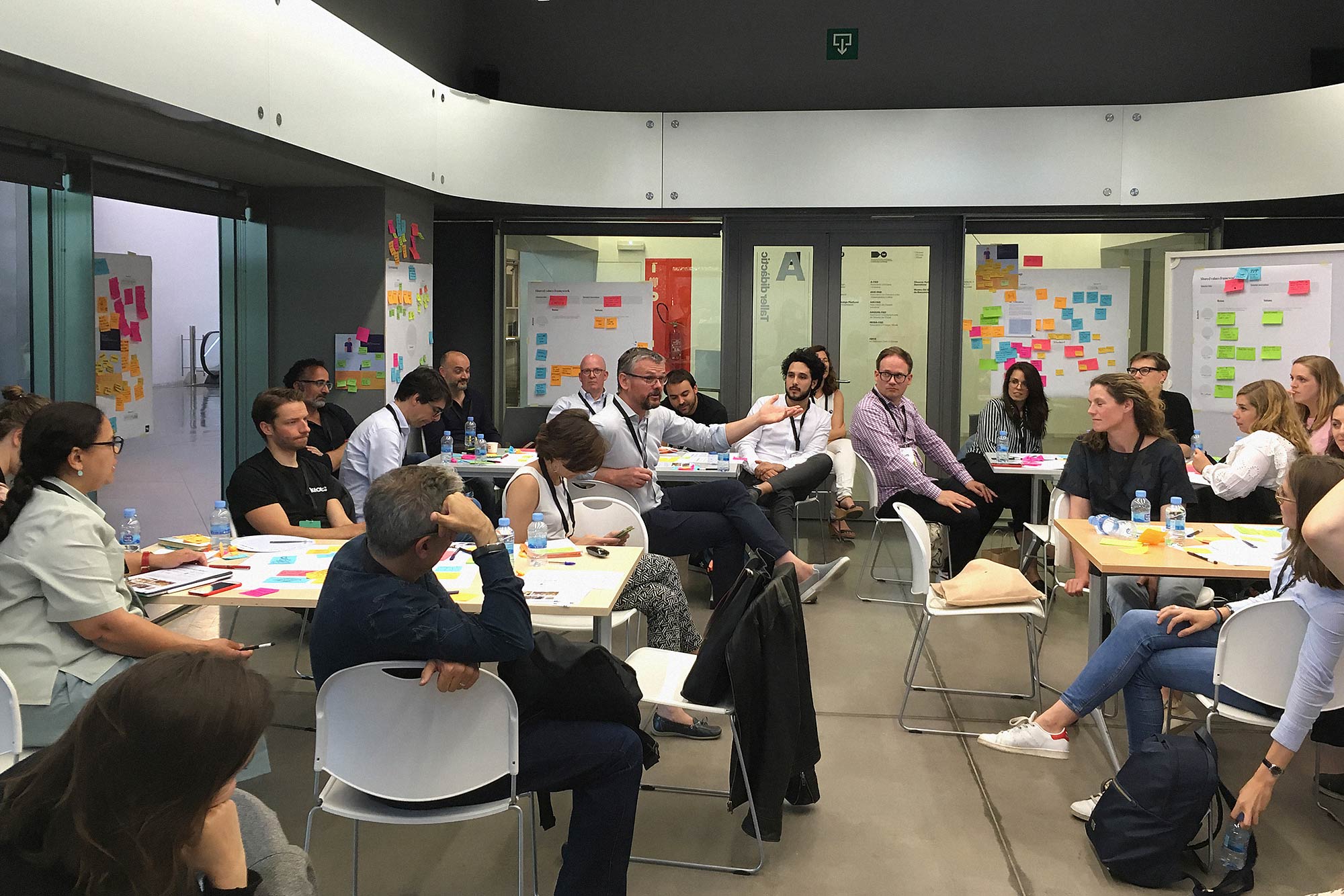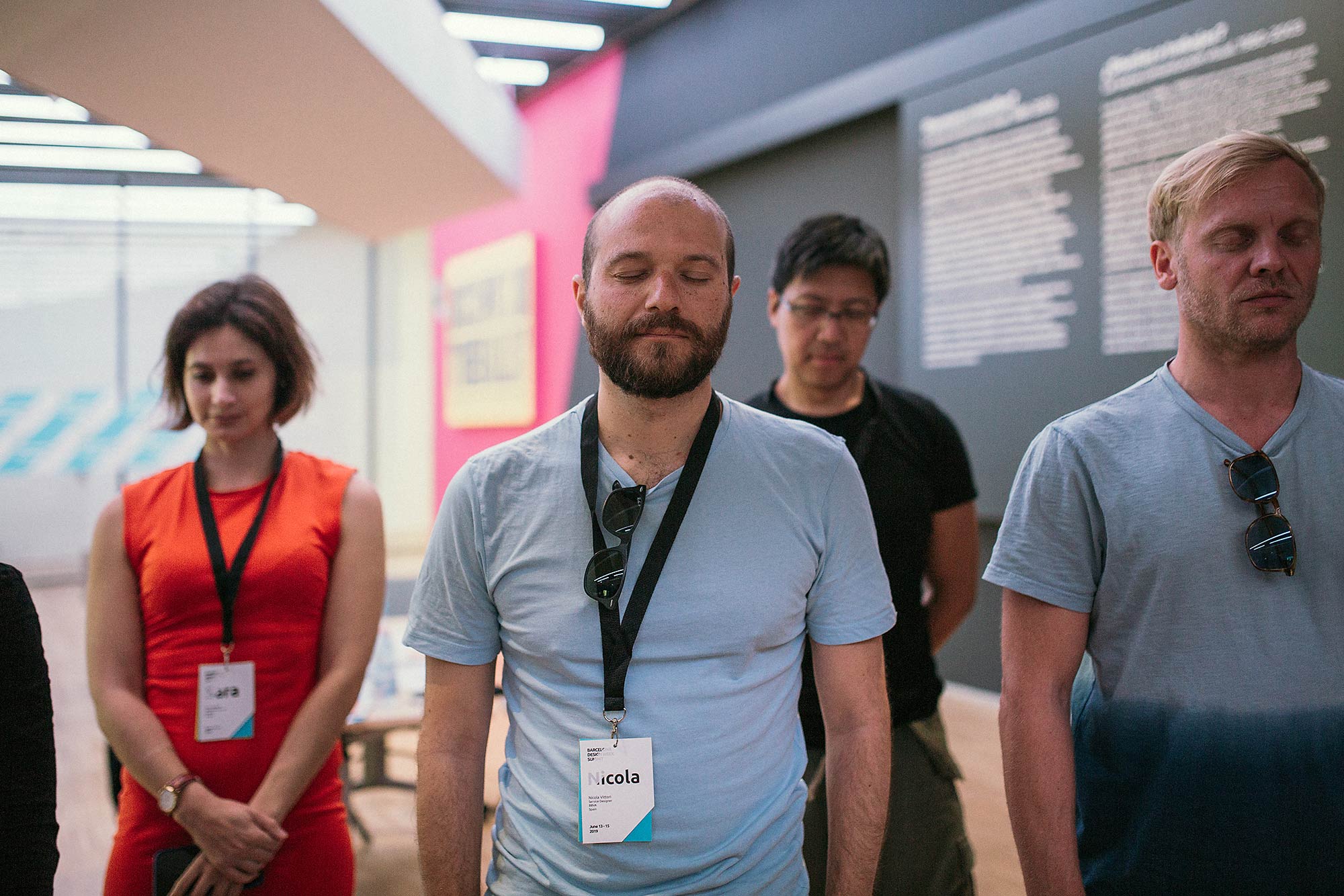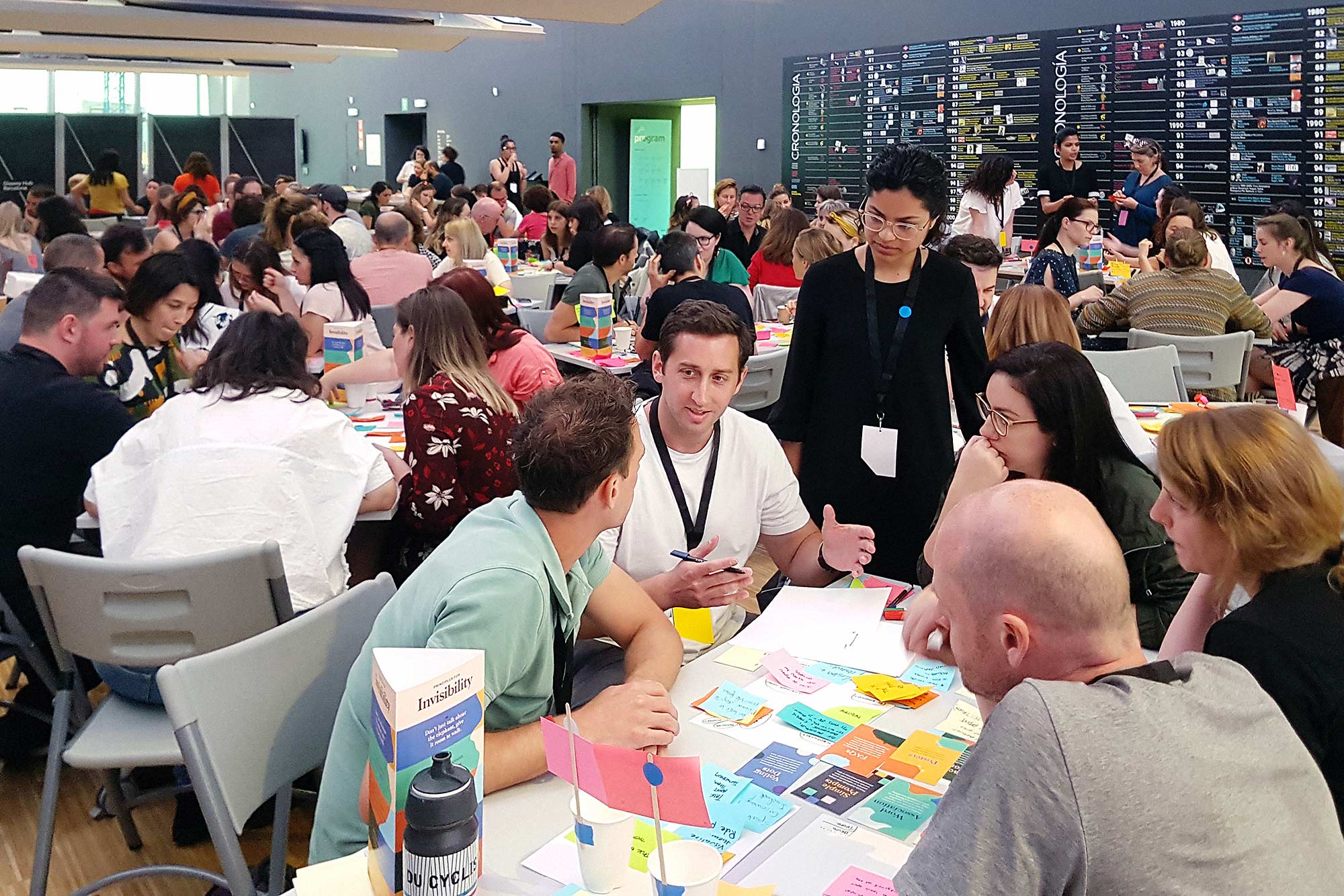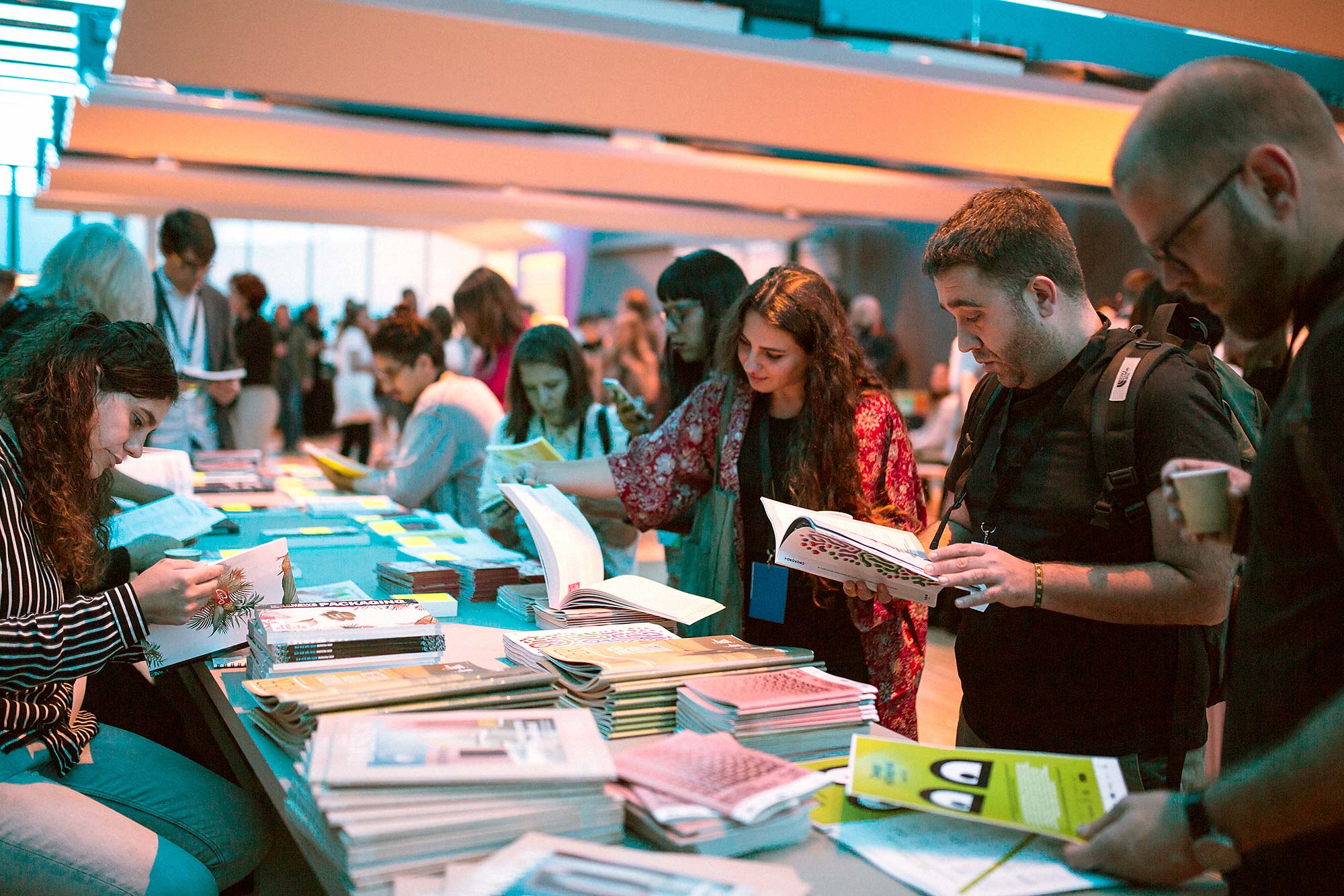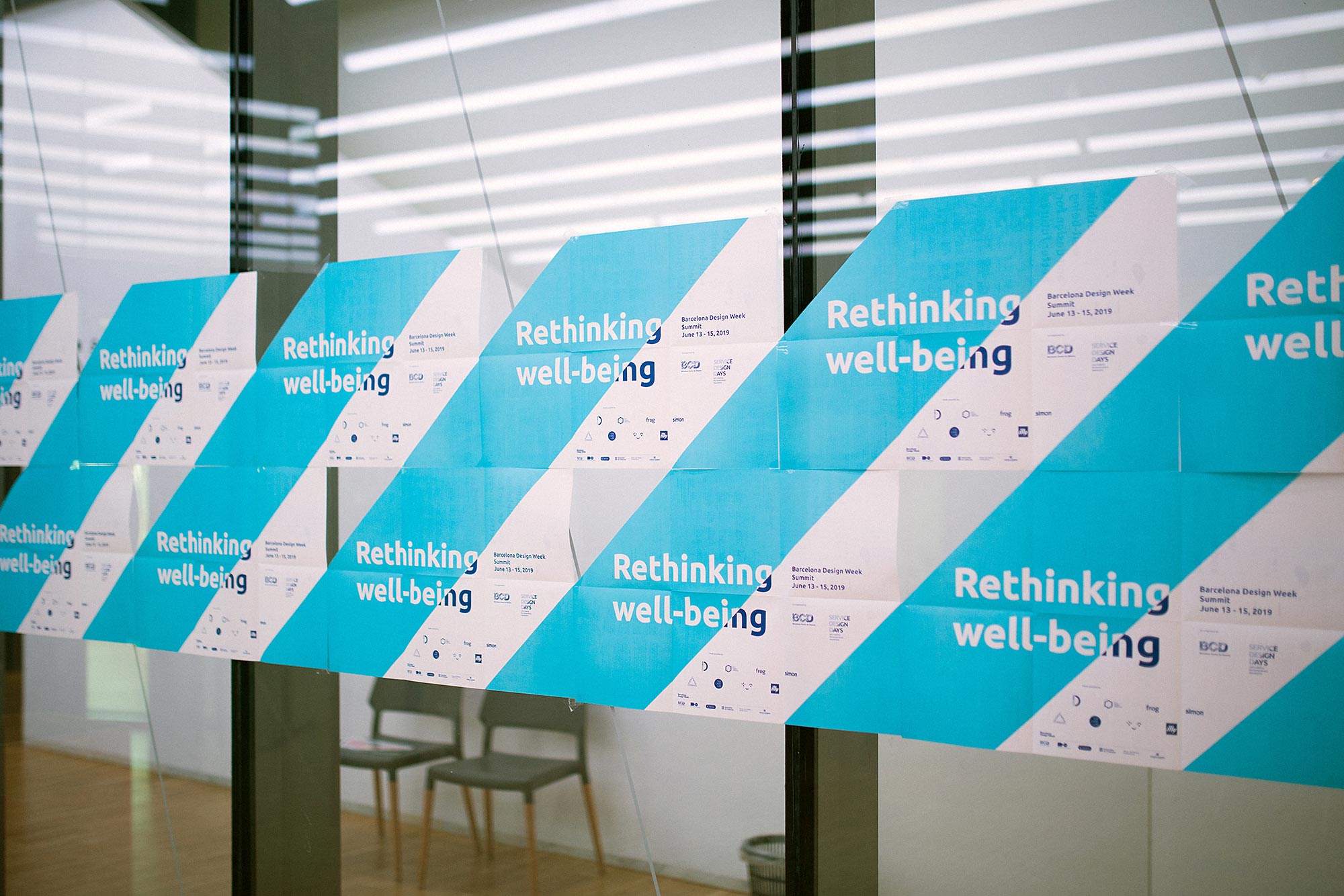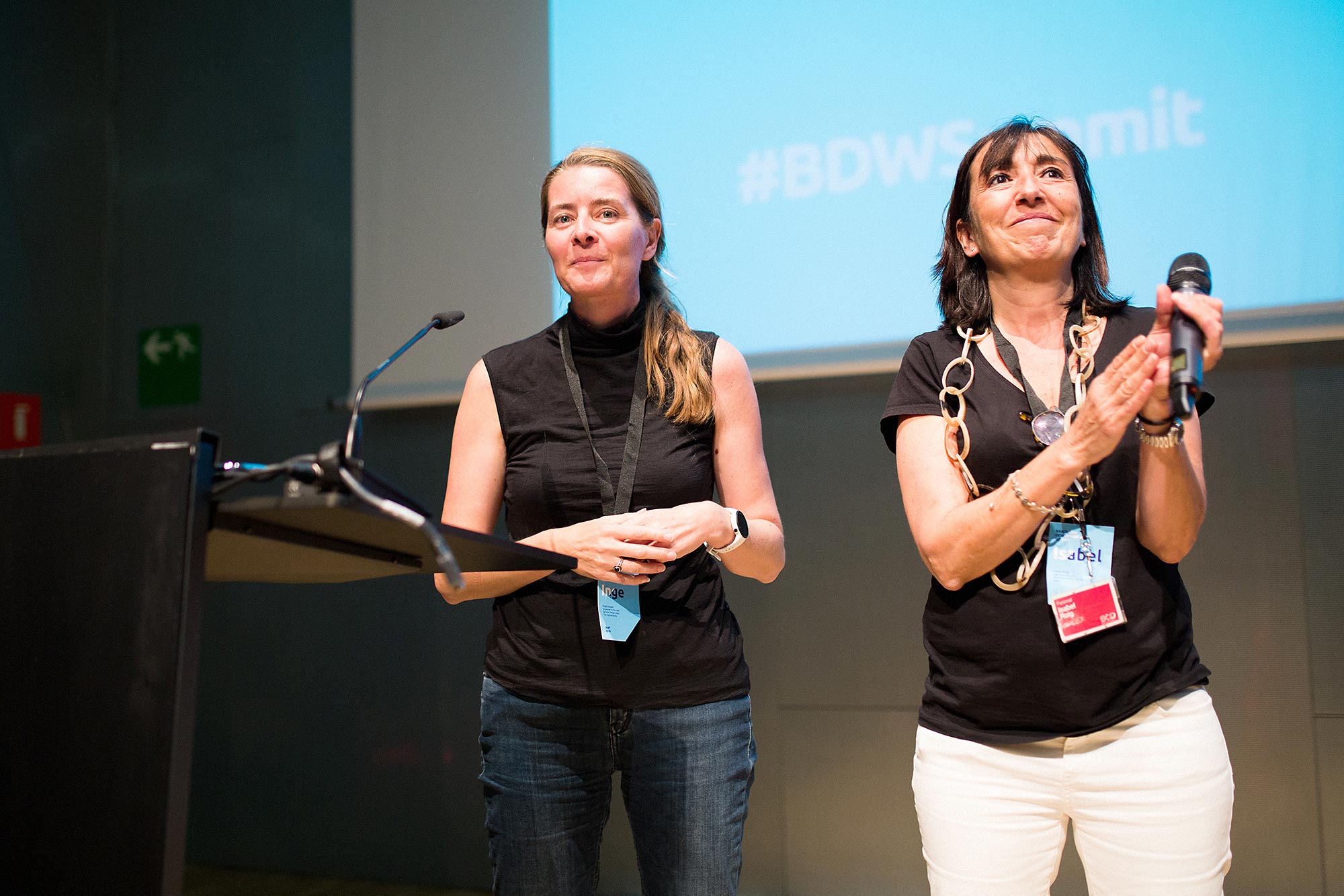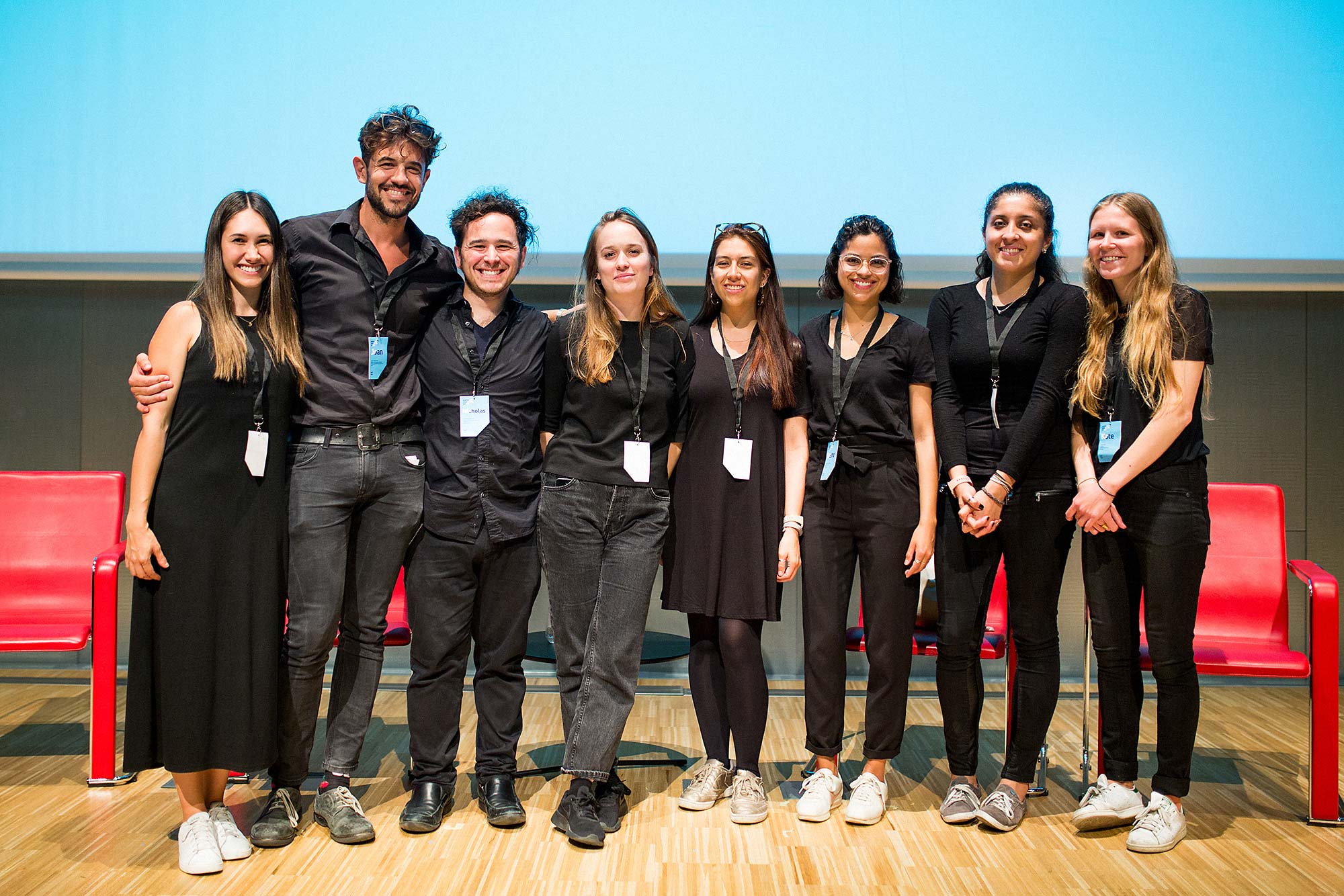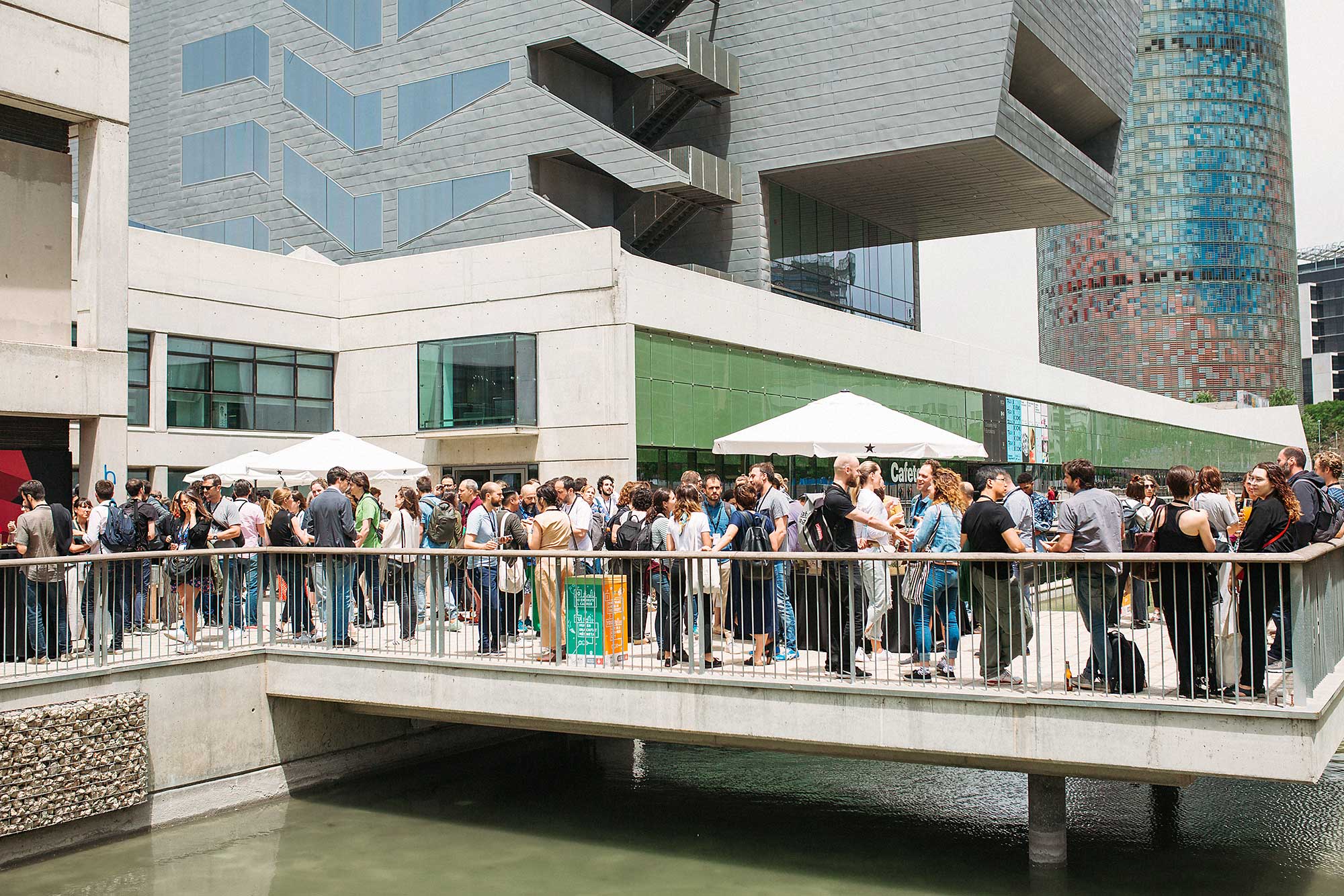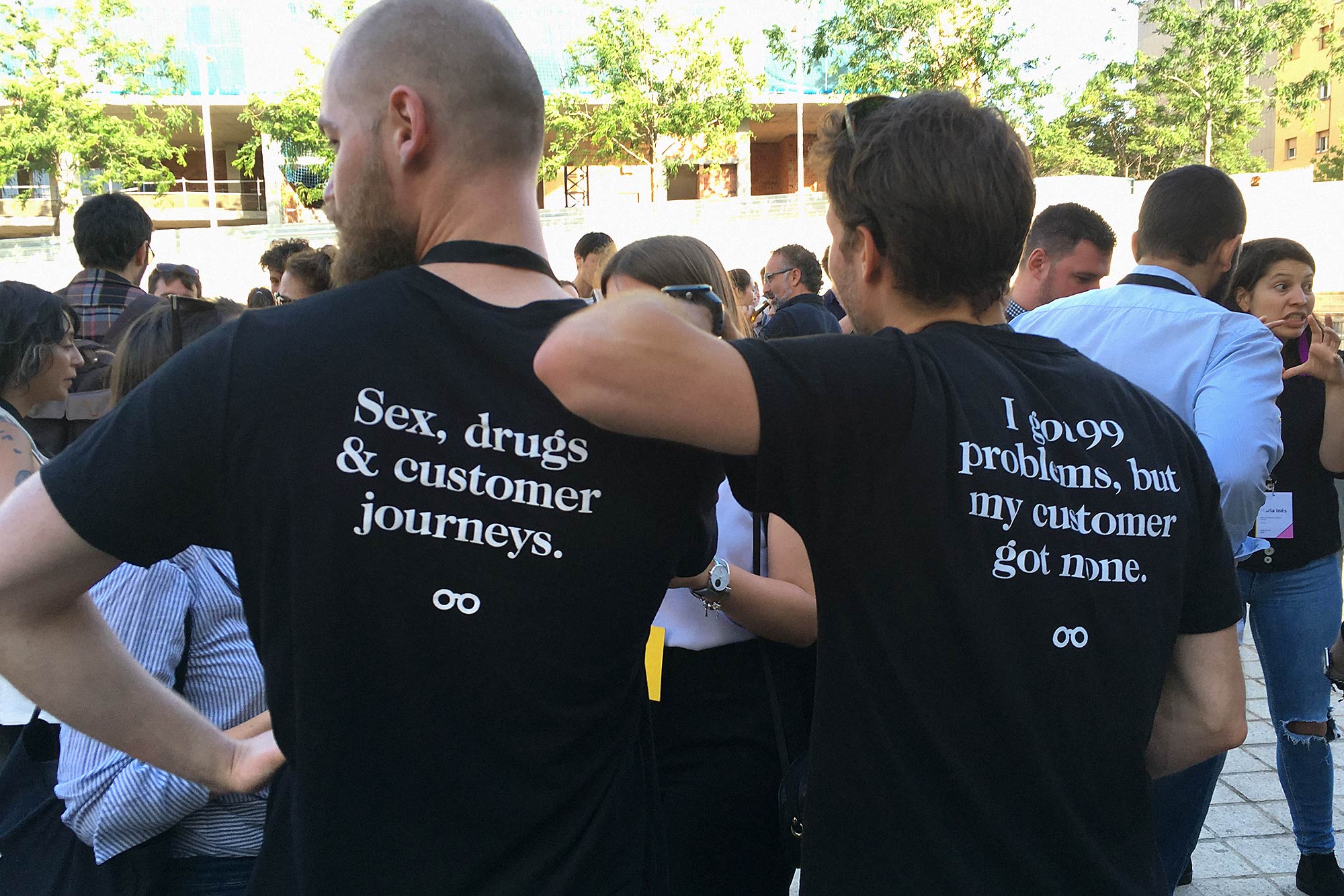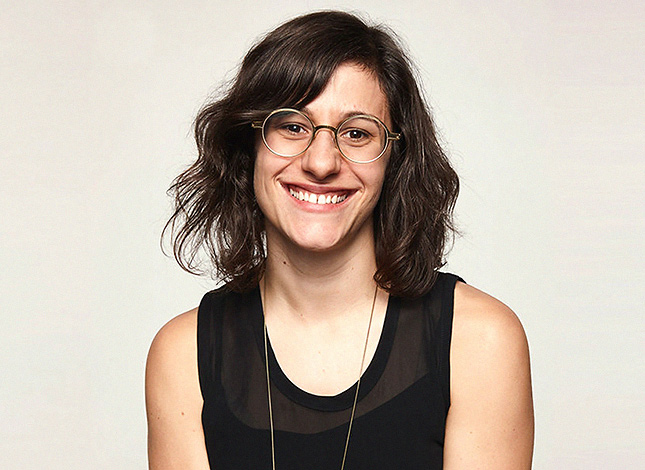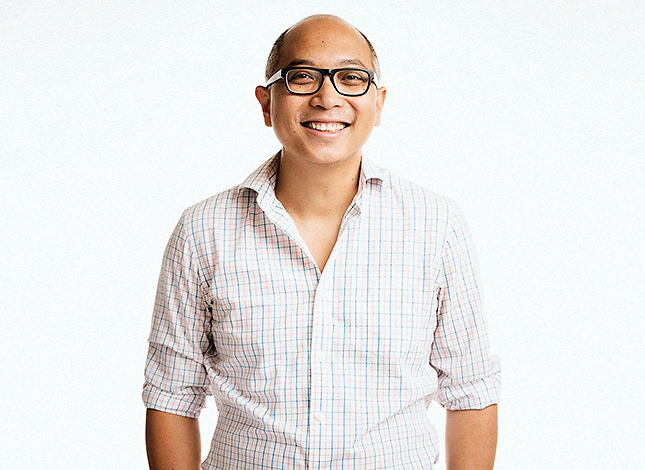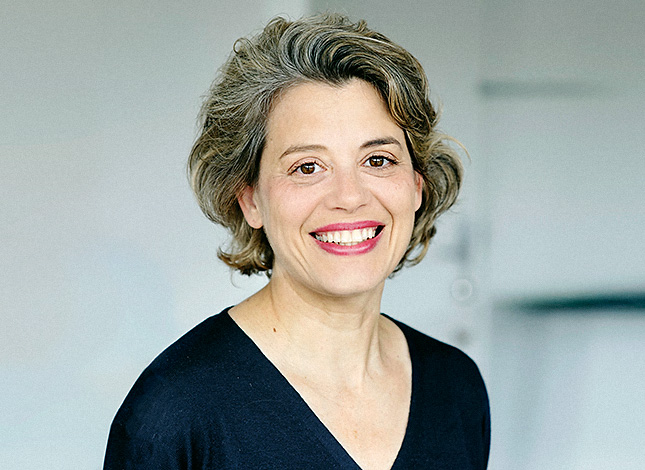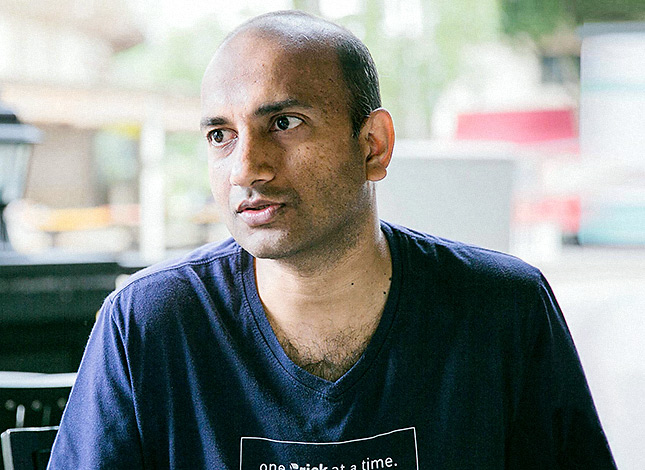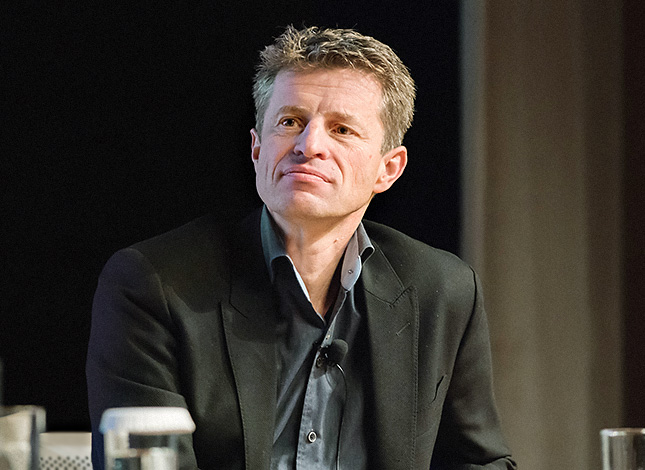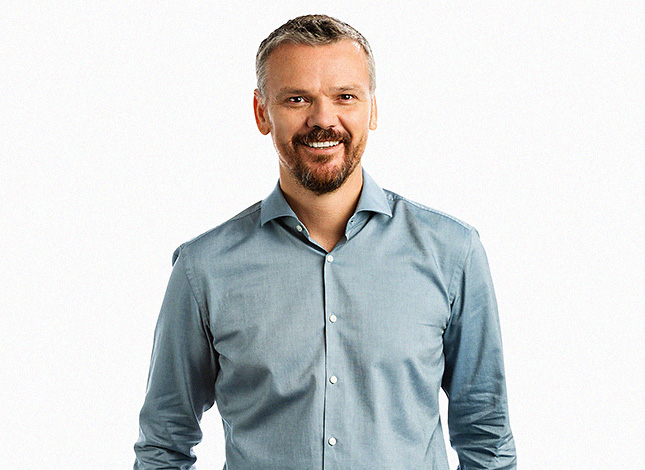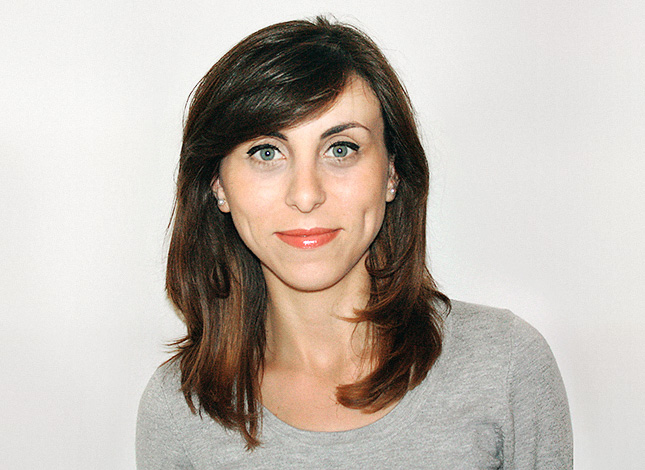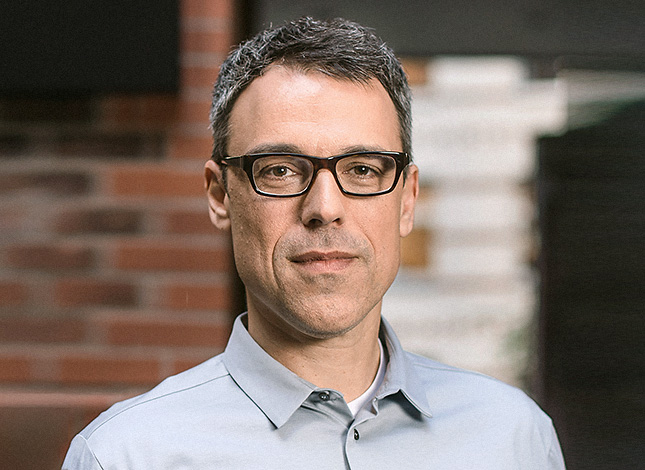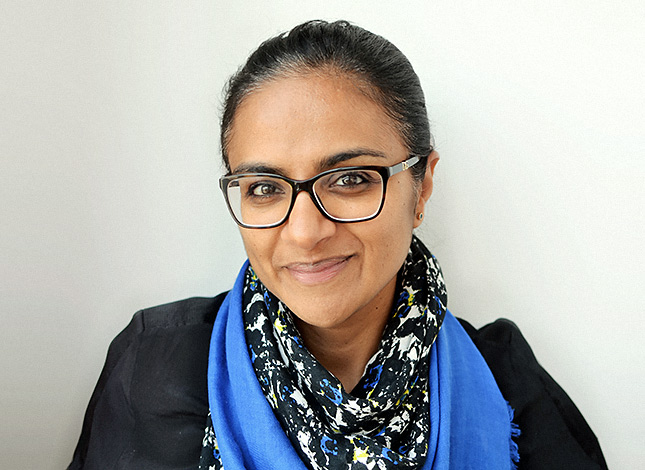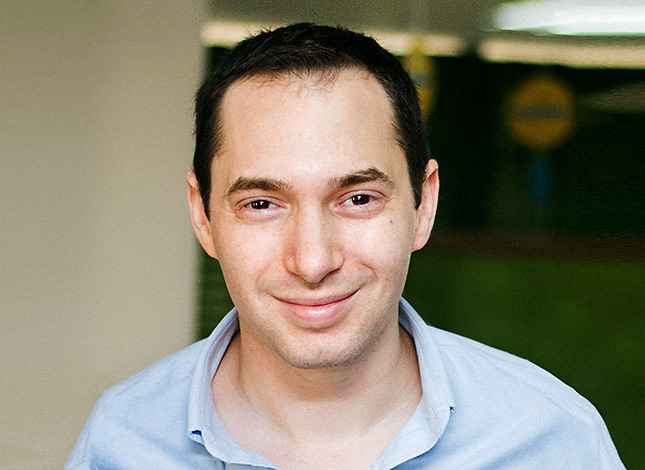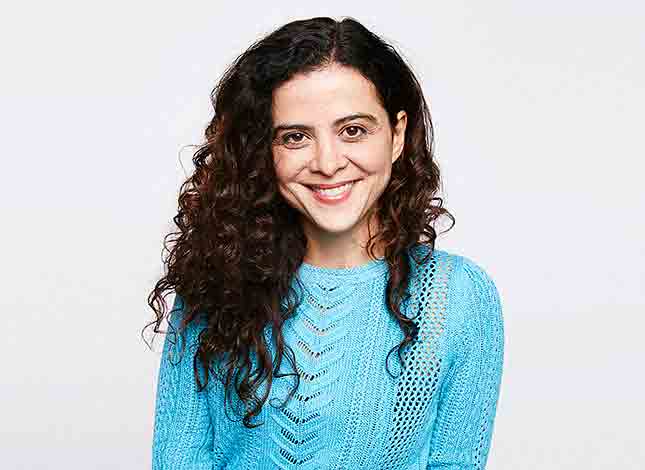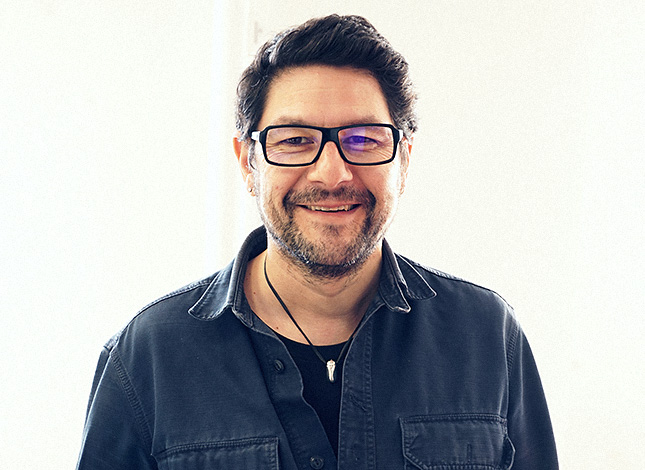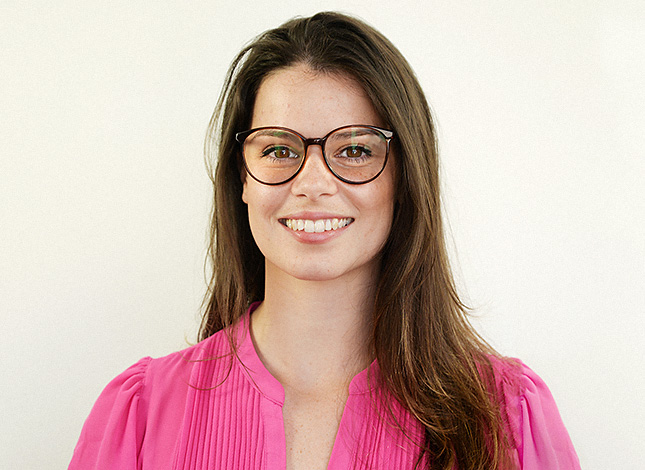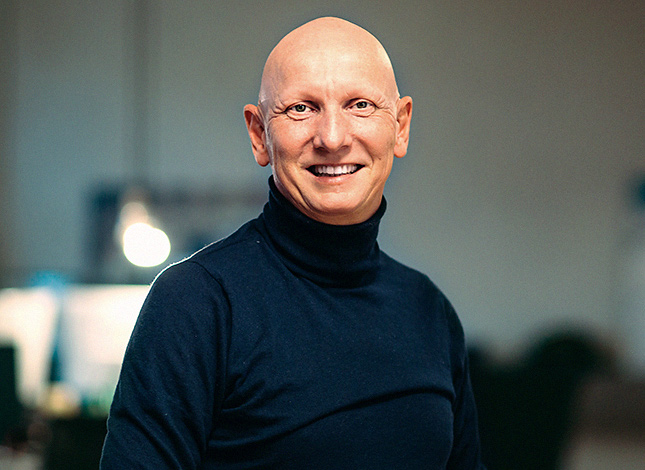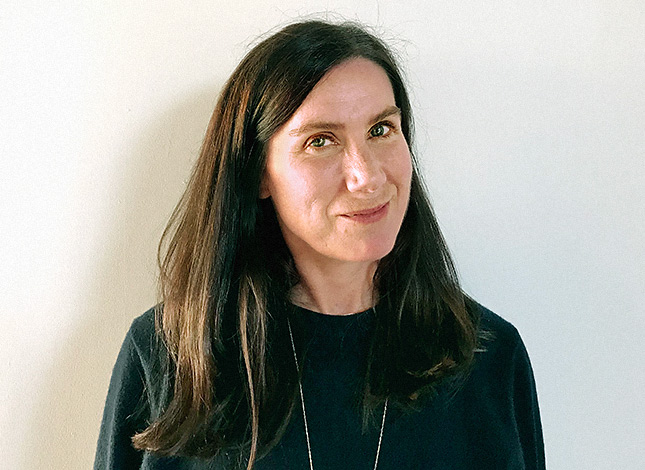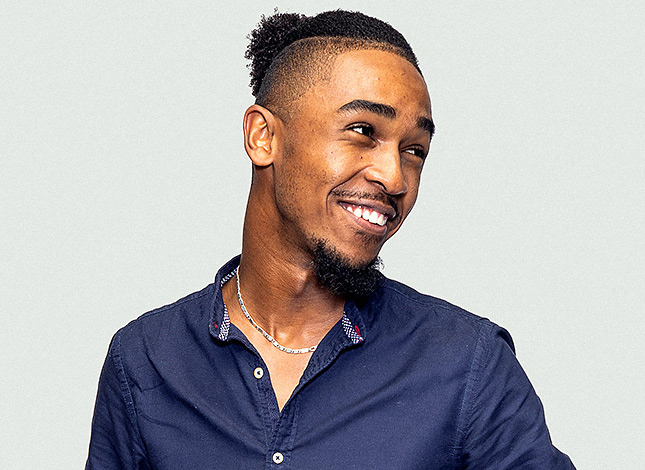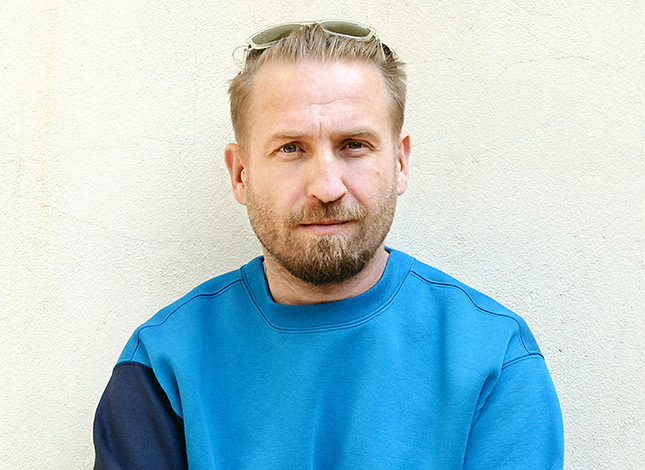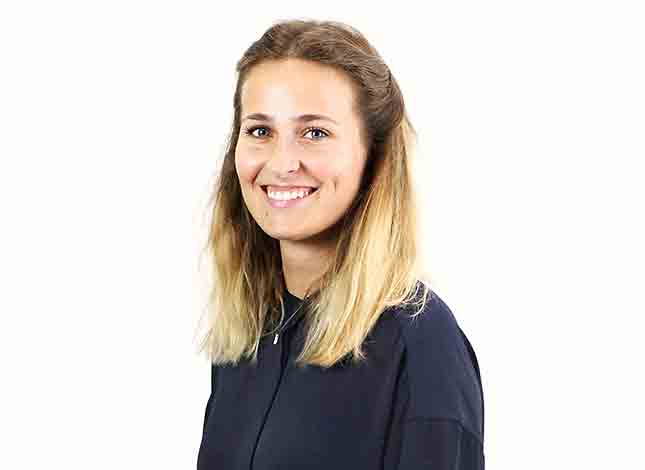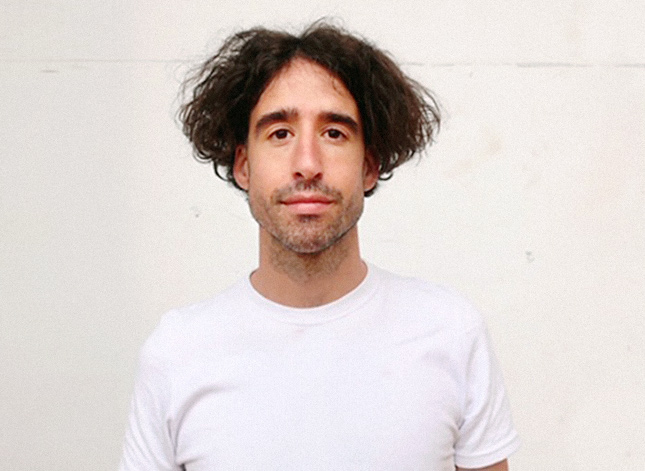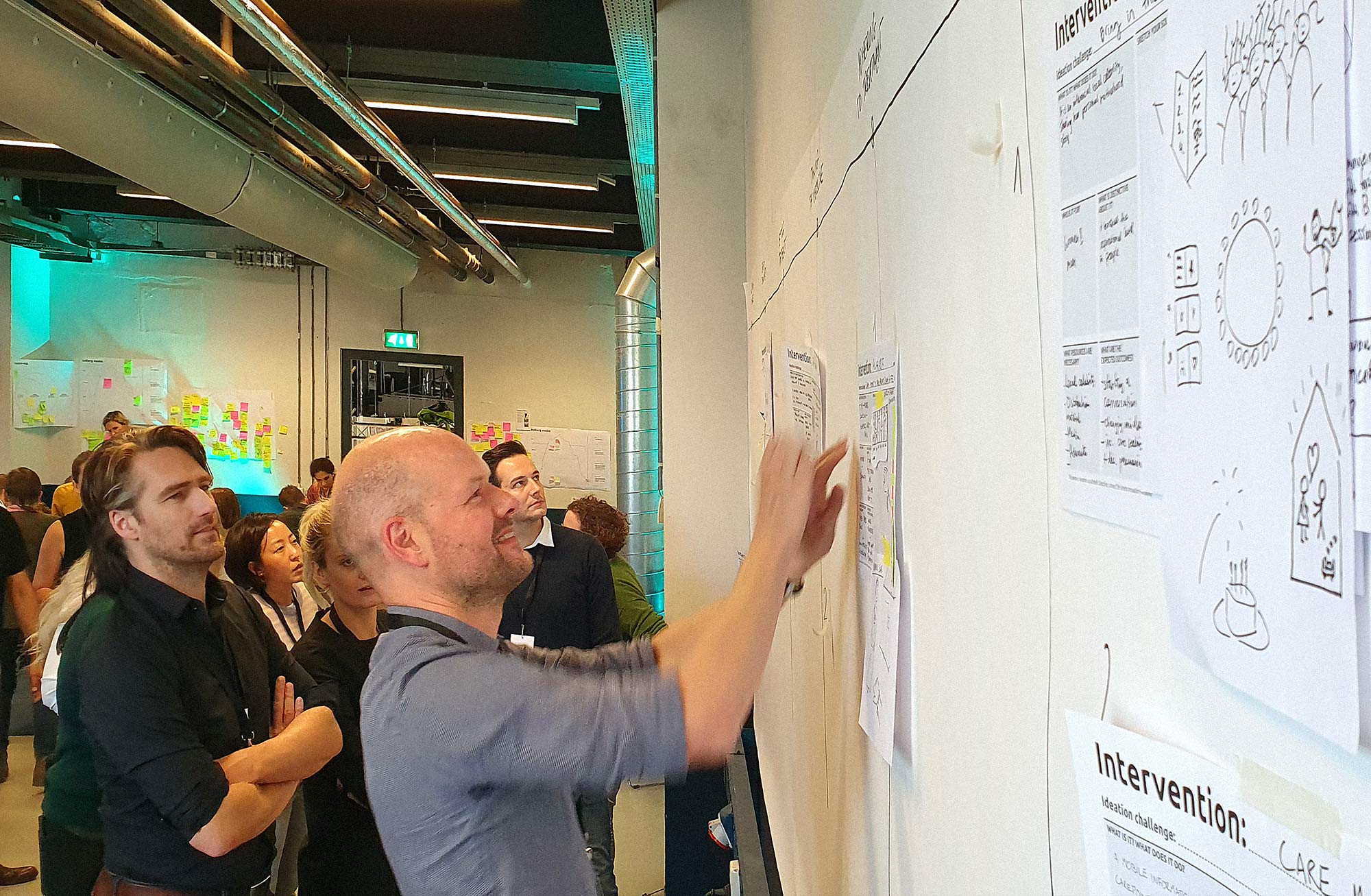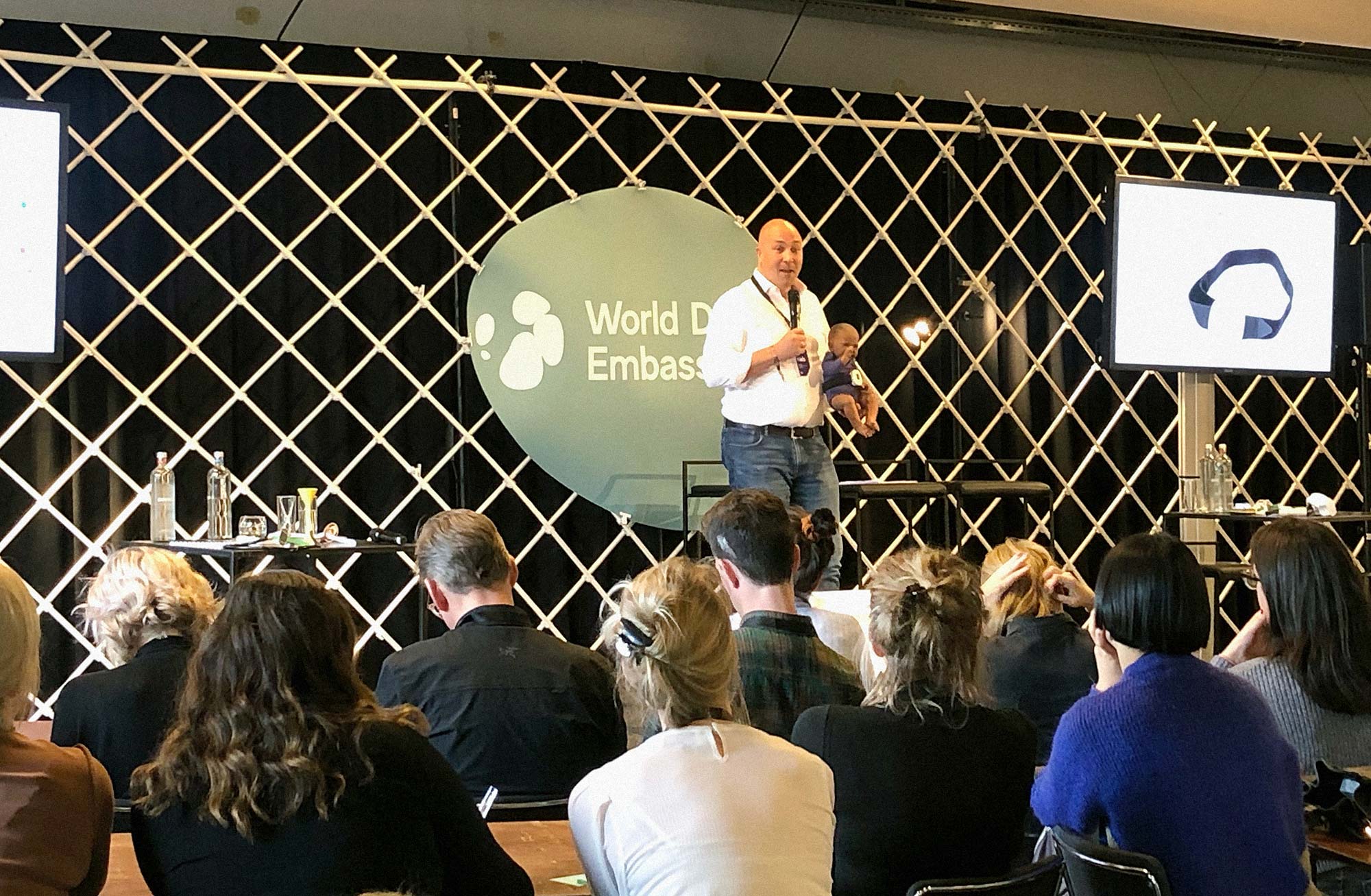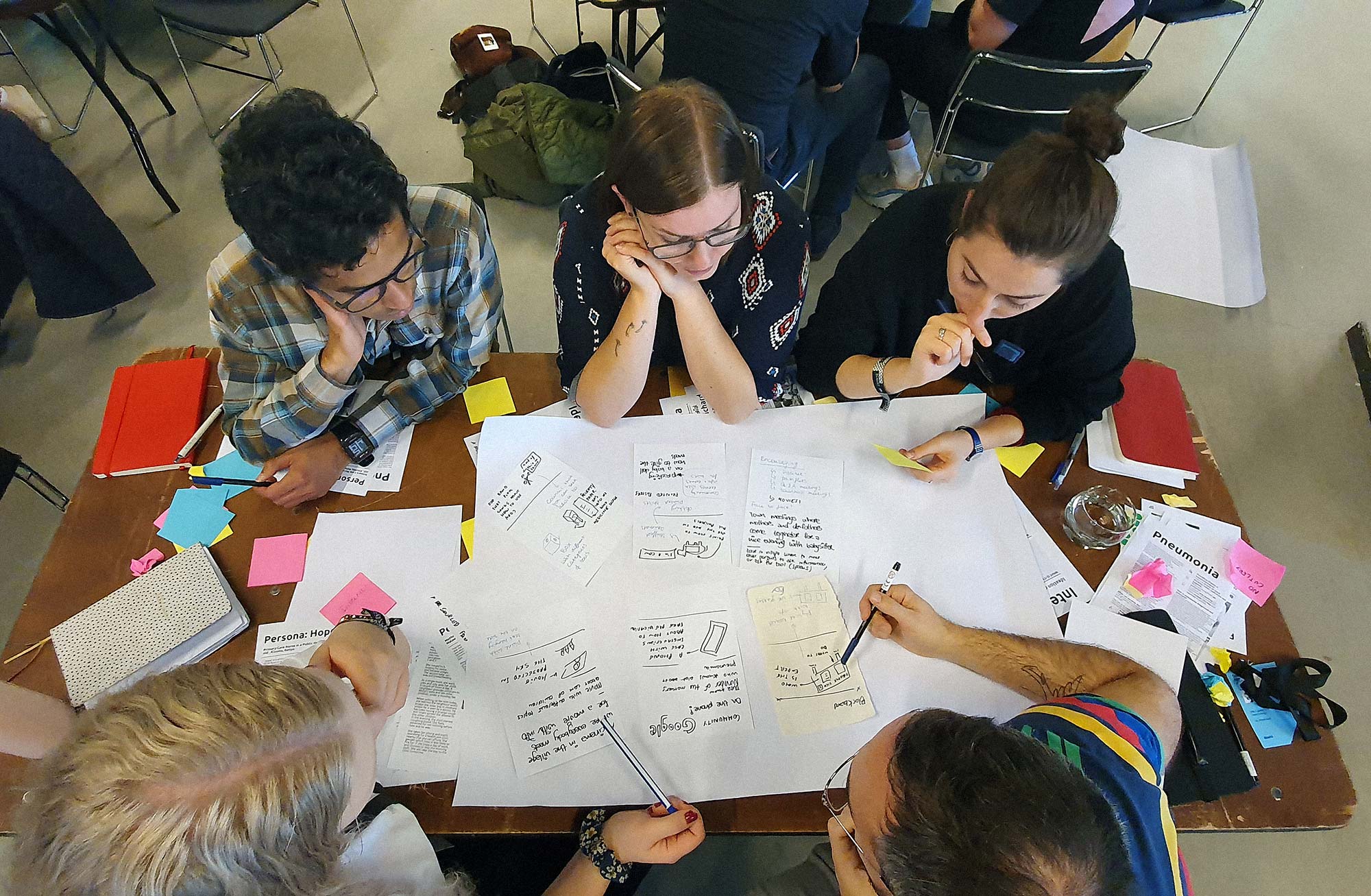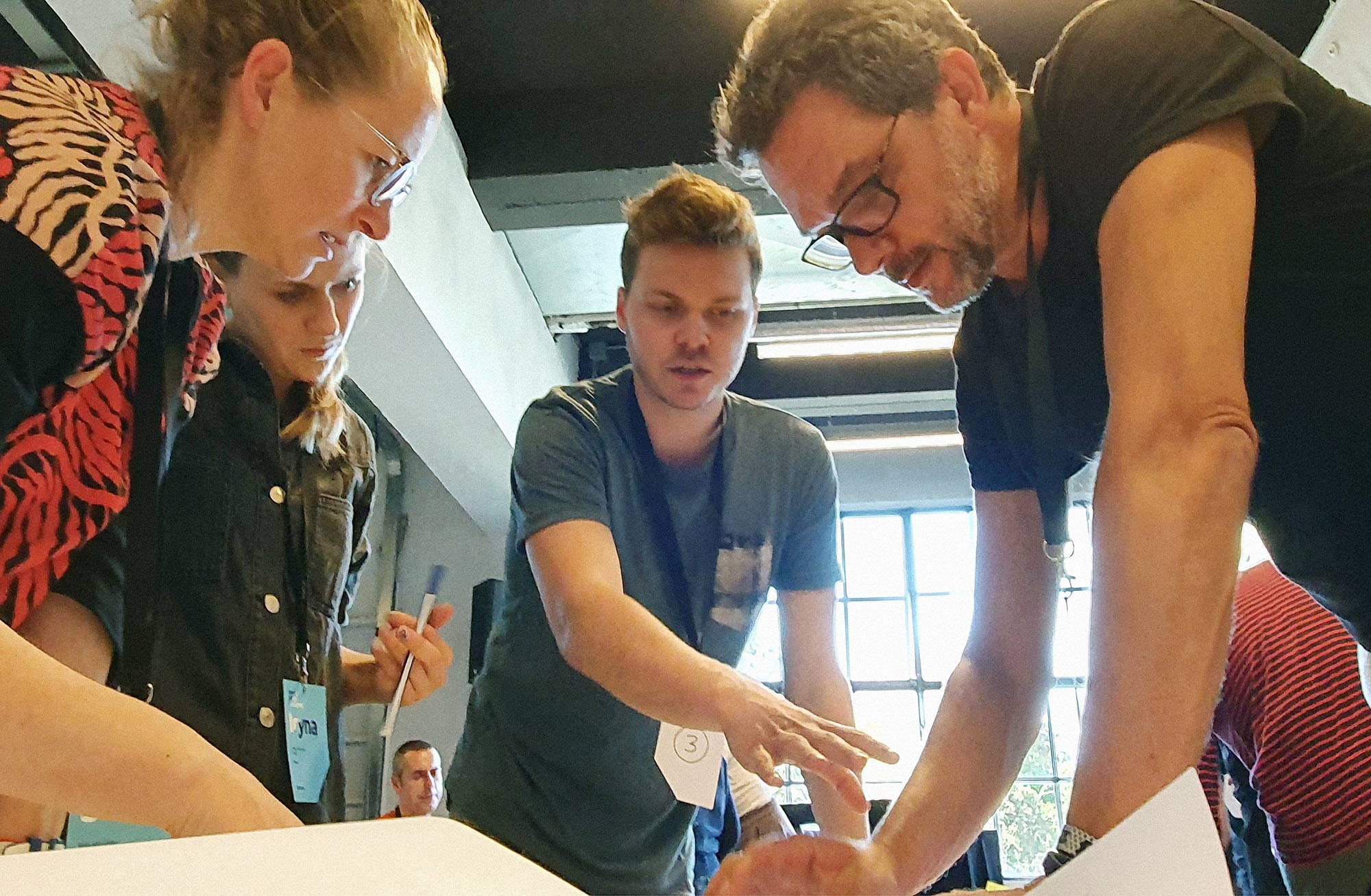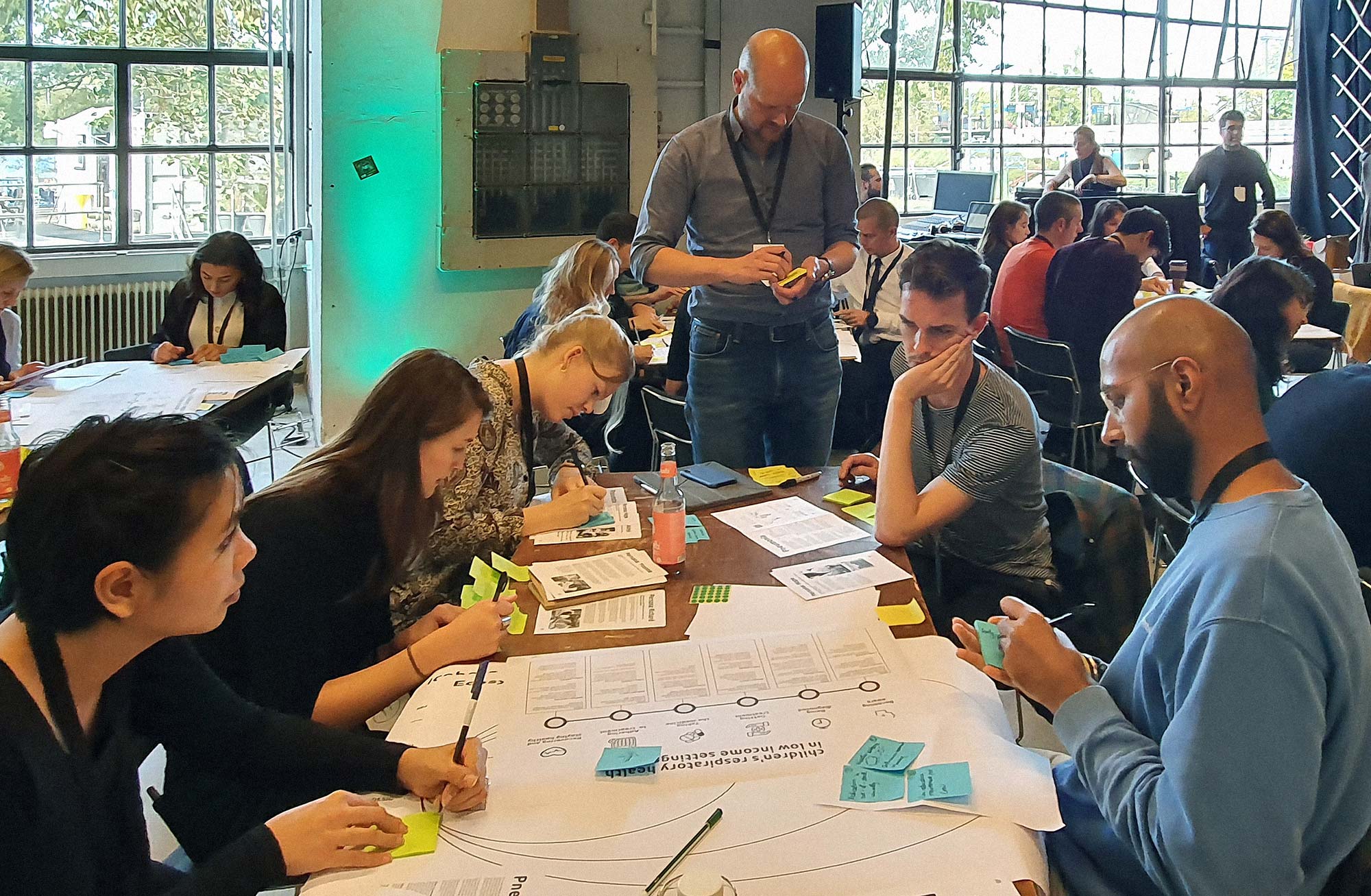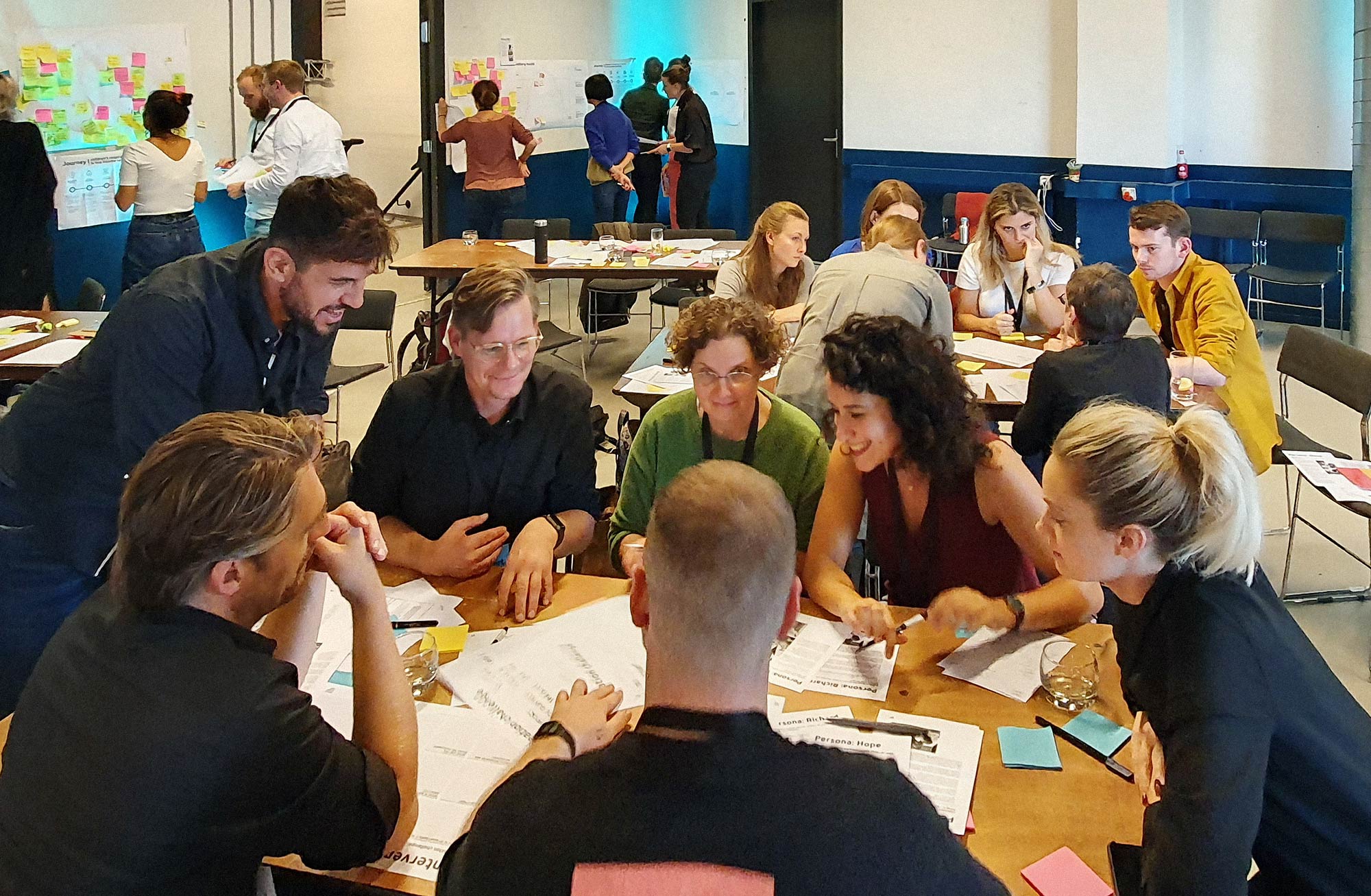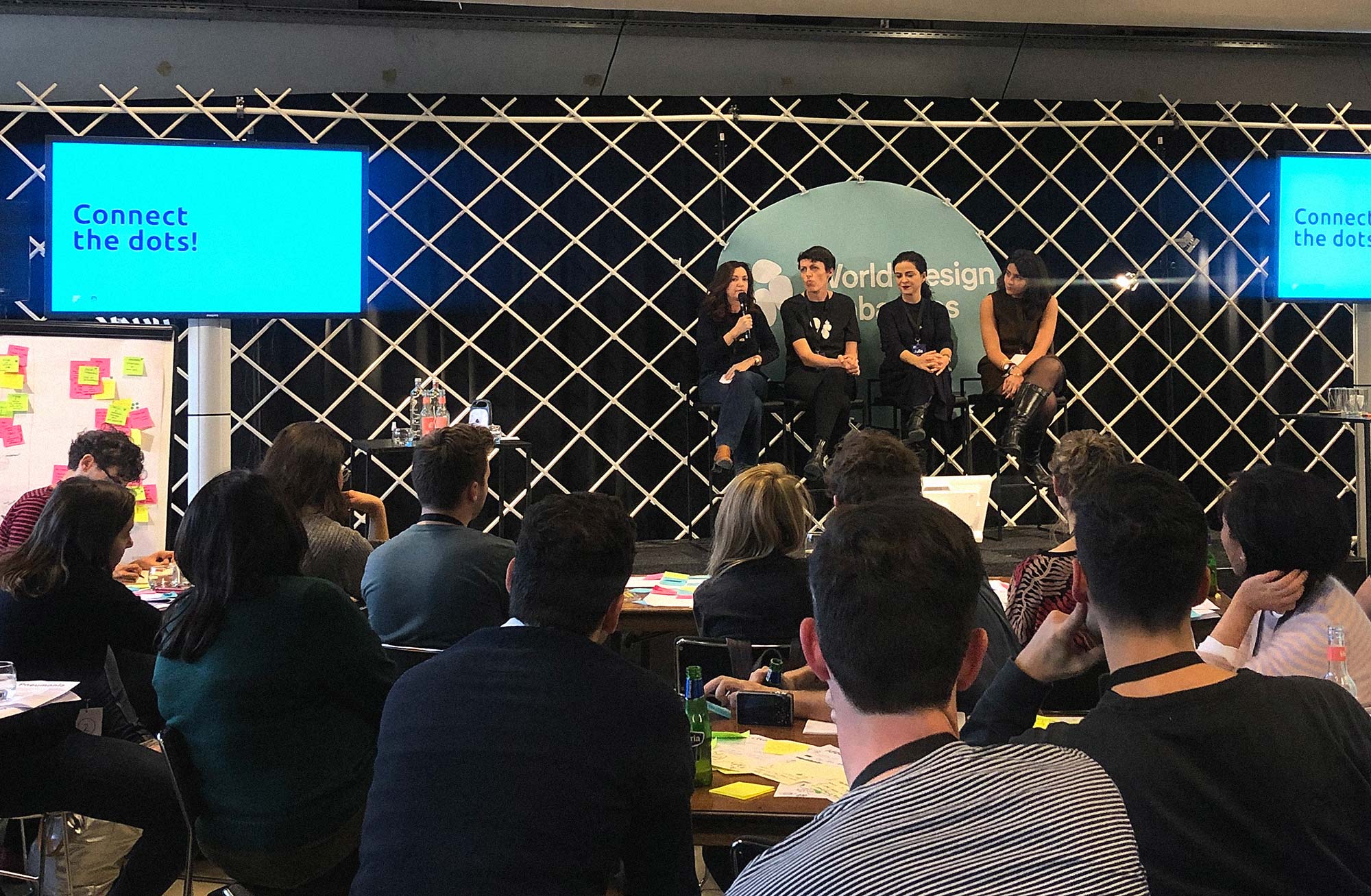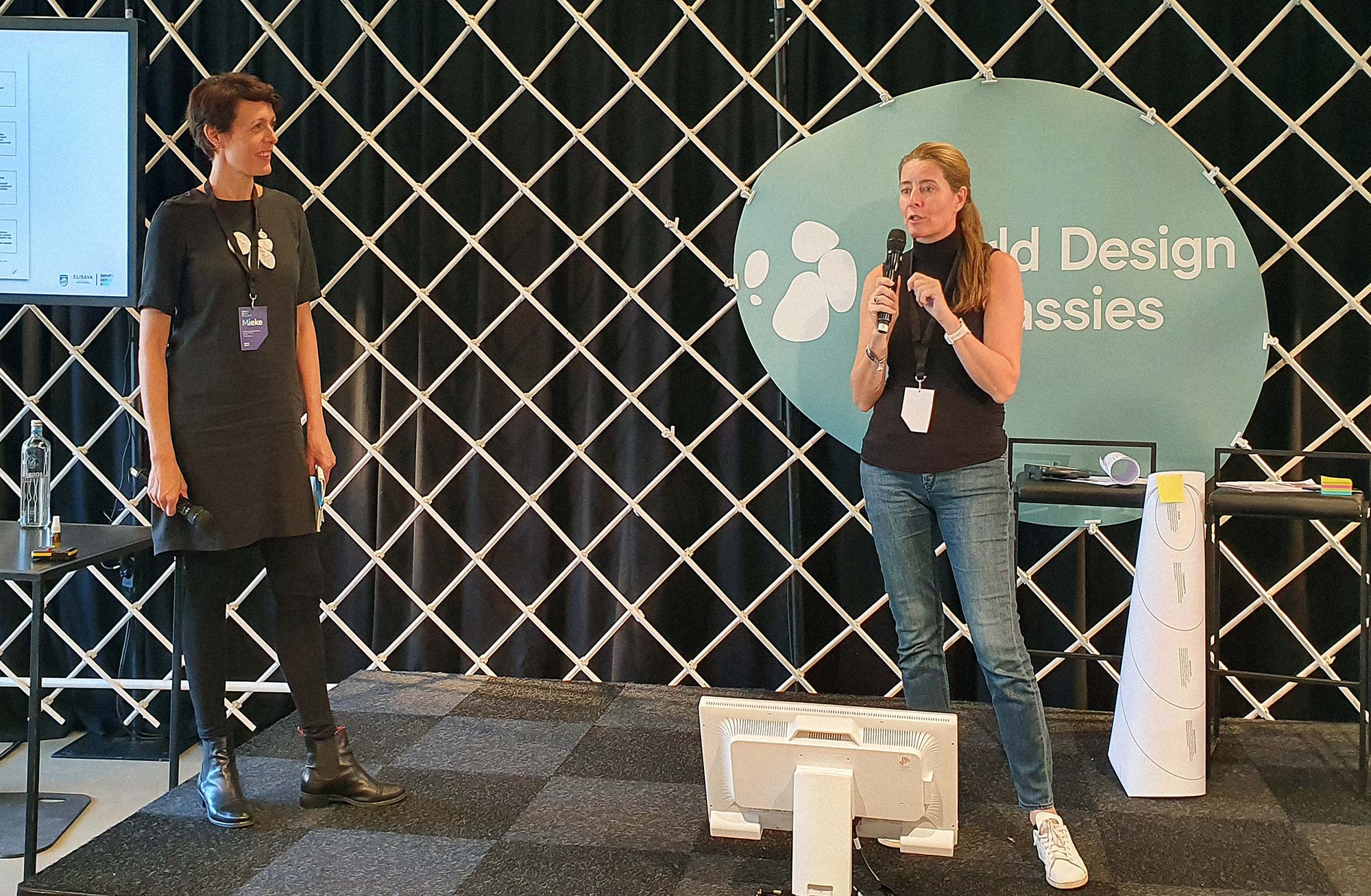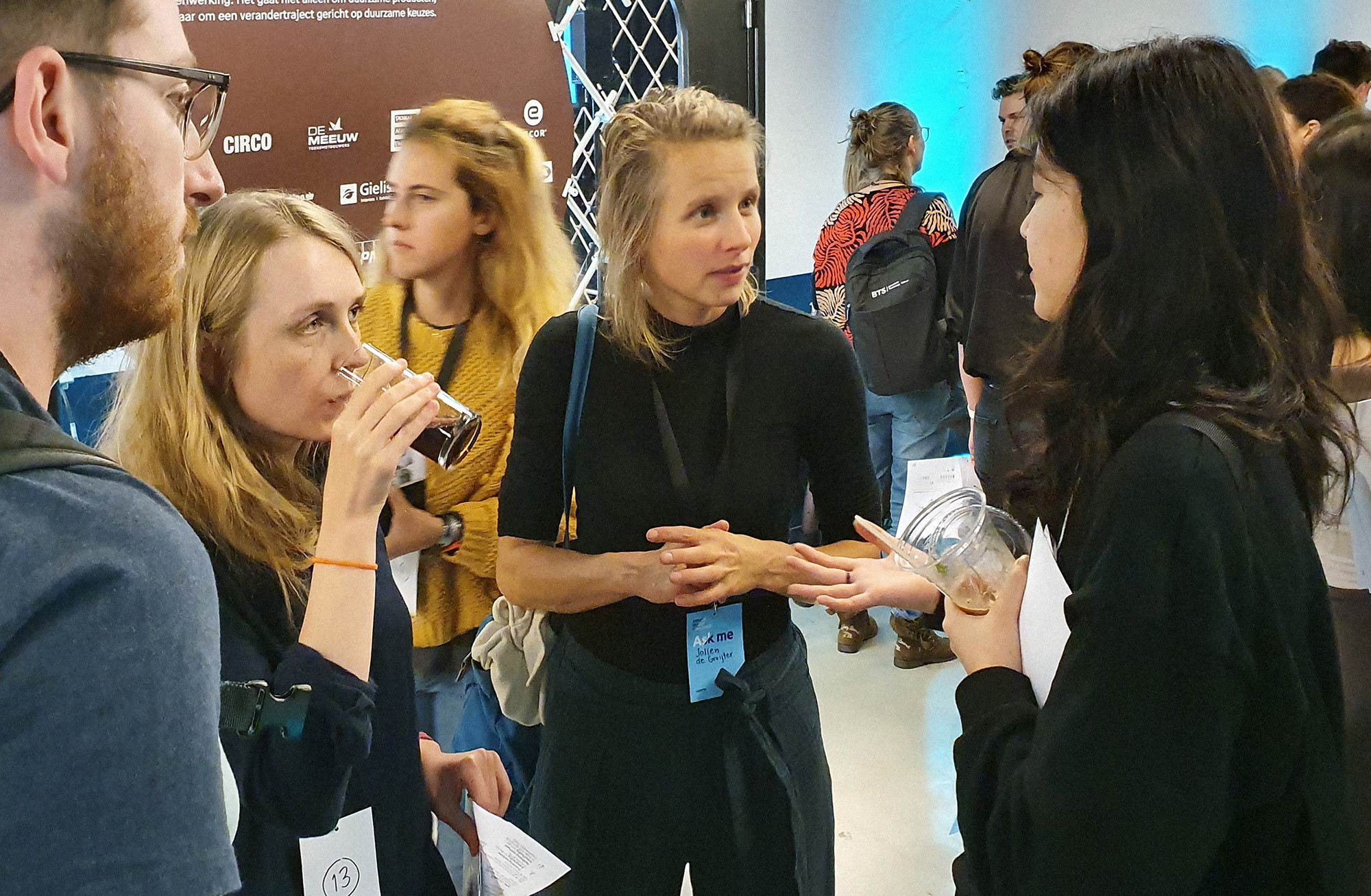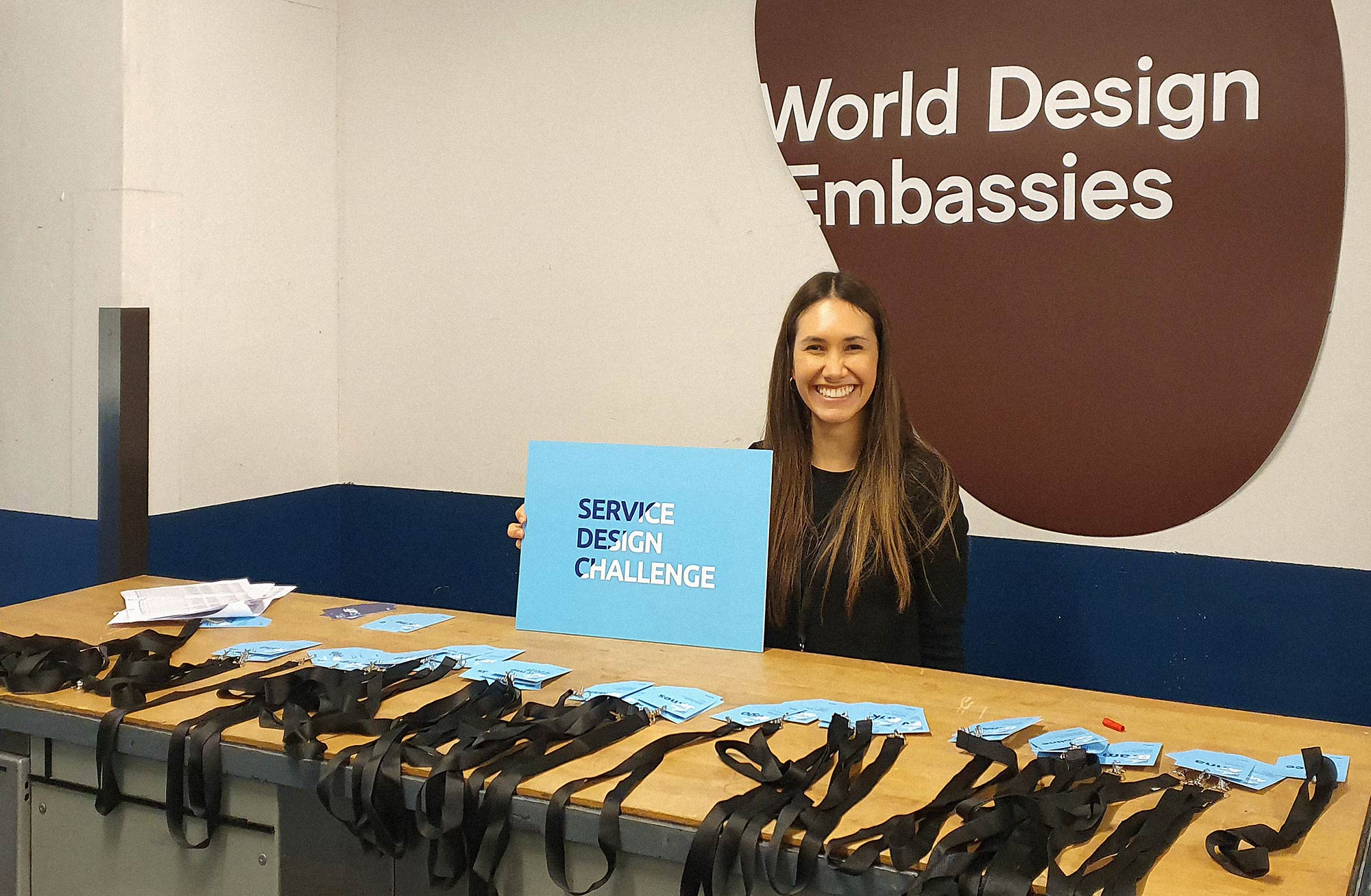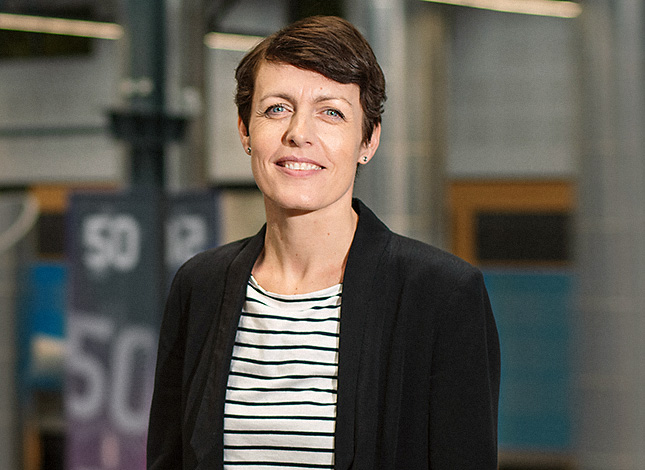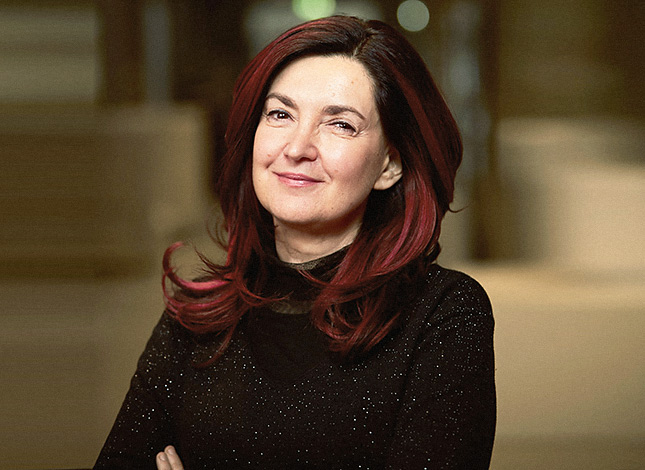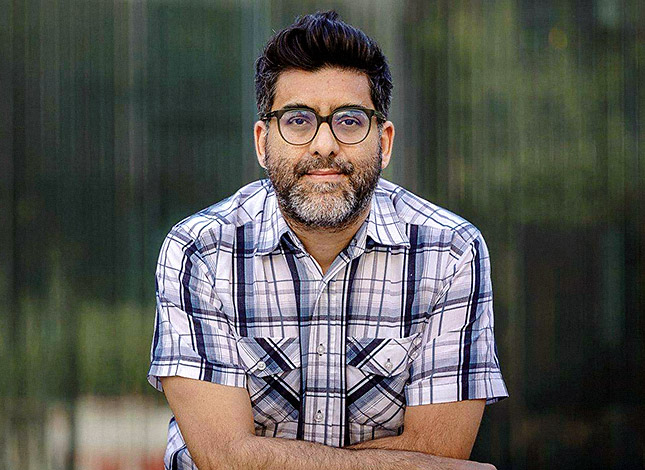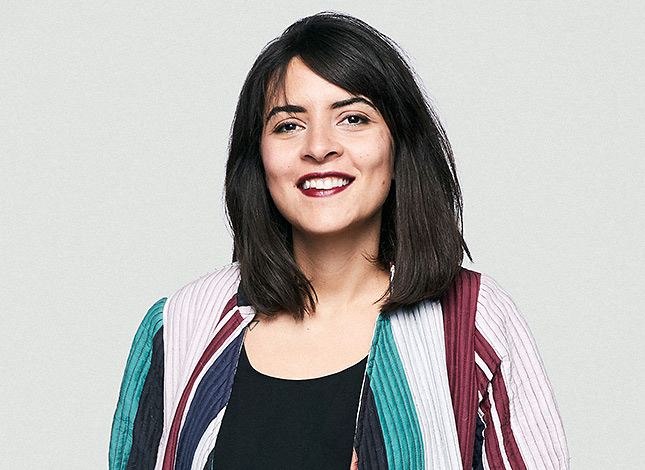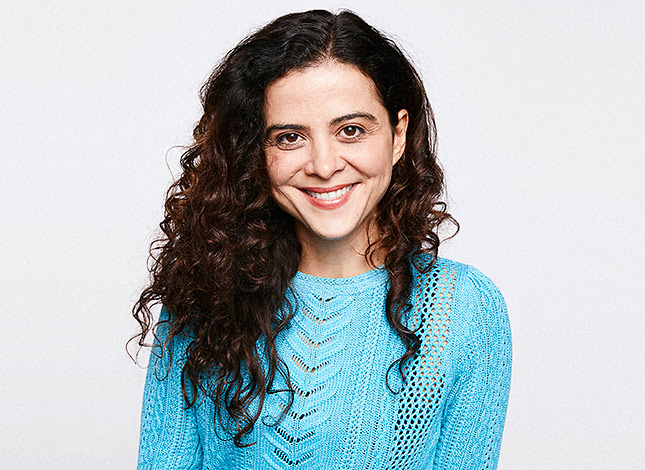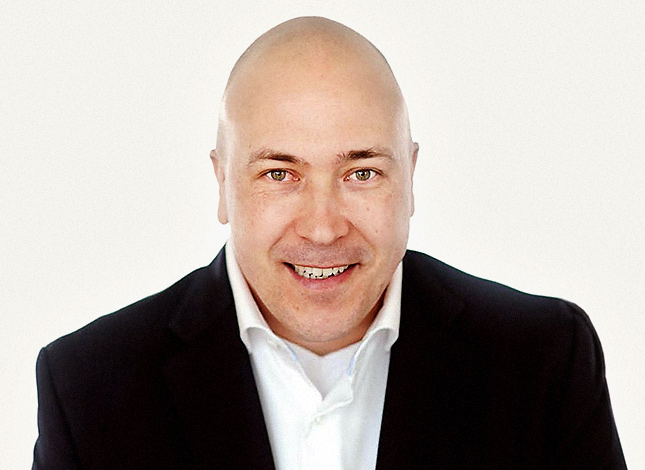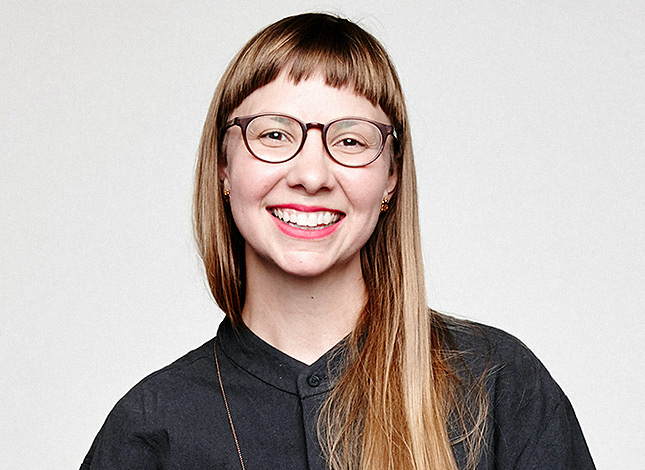Innovating for sustainable futures
The overall theme for 2019 is 'Innovating for sustainable futures’. For this, we need to rethink, reframe and redesign the way in which we define impact and growth, address systemic problems and innovate.
We kicked-off with a summit on ‘Rethinking well-being’ during the Barcelona Design Week. Well-being and quality of life are becoming key success factors for a growing number of organisations. Values as individualism, competition and market primacy are no longer leading. Instead new societal values - trust, relationship and collaboration - are the guiding principles. Recent research shows that companies that integrate societal consciousness in their core operations, perform better financially. Human-centered design is well-placed to help realise this transition. Driving a better understanding of citizens, patients, consumers, students and other customers, helping to identify their demands and hidden barriers. And empowering organisations and their employees to create unique and valuable experiences for each and every person.
So, how to improve our view on well-being as a driver for innovation and positive change? How to look at problems from a human perspective? How to design services that contribute to people’s happiness, and help individuals to participate in society, become healthier, and feel more empowered? And what can we learn from NGOs and care providers, for which human centricity lies at the core of their activities?
This first event of 2019 engaged over 300 participants into the relevance of creating shared value and addressing societal challenges as a source of innovation and organisational growth. They practiced new methods, approaches and strategies. They heard fresh ideas and new perspectives from different industries, contexts and stakeholders. And focused on two Sustainable Development Goals: Improving people’s positive functioning and well-being (#3), and Empowering and building sustainable communities (#11).
BDW summit program
This summit has been organised in partnership with the Barcelona Design Centre (BCD). The summit took place from June 13 till June 15, as part of the Barcelona Design Week 2019.
It offered interactive masterclasses, future-focused keynotes, and insightful case talks. On the day before the conference, a Service Design Tour was organised. These office visits gave our participants an intimate peek behind the curtain of Barcelona’s leading Service Design agencies: Designit, Fjord, INSITUM, Nacar and We Question our Project. The agencies shared their knowledge, methodologies and cases.
The official summit kick-off took place in Space SIMON 100, the renovated factory from the lighting company SIMON. On the final day, a special masterclass was given by design experts from IDEO.org.
More than 300 enthusiastic attendees - strategic thinkers and doers - from over 30 different countries throughout the world shared their experiences with each other. Over 90% of the audience rated this summit good to excellent.
The line-up
For the summit a mixed group of international experts came on stage. Below you’ll find the list of the speakers and masterclass leaders, working for agencies, universities, startups, and other small and large organisations.
Their fields of expertise span across the entire range of disciplines related with human-centered innovation and service design, such as: social design, business design, systems thinking, experience design, and design thinking.
Service Design Challenge DDW19
In this interactive service design event at the Dutch Design Week in Eindhoven, over 80 participants from 18 different countries were introduced to one of Philips’ design challenges. A challenge on well-being and access to care to pneumonia. They dived deeper into it by working in small groups supervised by a team of professors and design experts. They learned how to combine methods from service design, design thinking, and systems thinking. And obtained new insights on how to achieve change for the better.
This full-day challenge was conceived especially for creative experts committed to positive change and who want to practice a framework and a unique set of methods that enable them to learn, innovate, and adapt to a complex and dynamic environment. As designers, we can focus on short-term happiness by delivering instant gratification, enjoyment, and satisfaction. But for improving well-being, we need to expand our focus from designing for the individual to finding solutions to collective needs. For this, we can use integrated systems approaches. With a holistic perspective and a thorough understanding of human ecosystems, we can aim for long-lasting impact.
The challenge was led by experts from TU Delft, IDEO.org and ELISAVA. The participants were divided into 12 groups and explored ways to frame a so-called wicked problem and its complex and interlinked context. They learned how to use systems thinking for service design to design product-service interventions that truly benefit people’s lives. With the use of methodologies like the ecosystem map and the iceberg model, 12 service solutions were defined.
The participants experienced service design as a design approach that may facilitate behavioural change. They reflected on their role as a designer in developing valuable responses to human and societal problems. And created confidence to design for inclusiveness, with and for the most vulnerable and marginalised groups in our society.
The line-up
For this full-day challenge, a mixed group of international experts shared their knowledge, underpinned with several inspiring cases.
They led the workshop and joined the final discussion and closing reflection.
